Bosses have been warned they risk criminal prosecution if they try to force employees to work without adequate protection against coronavirus.
The warning came on the eve of the return to work called for by Boris Johnson in his strategy for relaxing lockdown restrictions.
Business secretary Alok Sharma promised that the government would be “looking out for” workers, and urged anyone who feels their workplace is not safe to contact the Health and Safety Executive.
Download the new Independent Premium app
Sharing the full story, not just the headlines
And the HSE’s chief executive Sarah Albon said her inspectors will be ready to issue enforcement notices requiring employers to cease dangerous practices or take additional protective action, with the sanction of criminal prosecution if they are ignored.
The government has allocated an additional £14 million to the HSE to enable it to carry out spot-checks on reopening work venues.
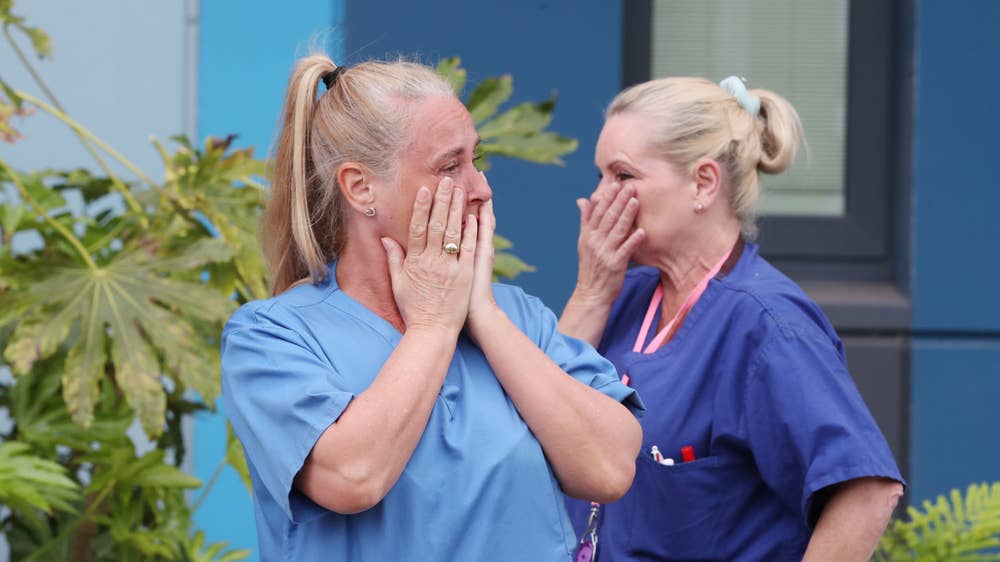
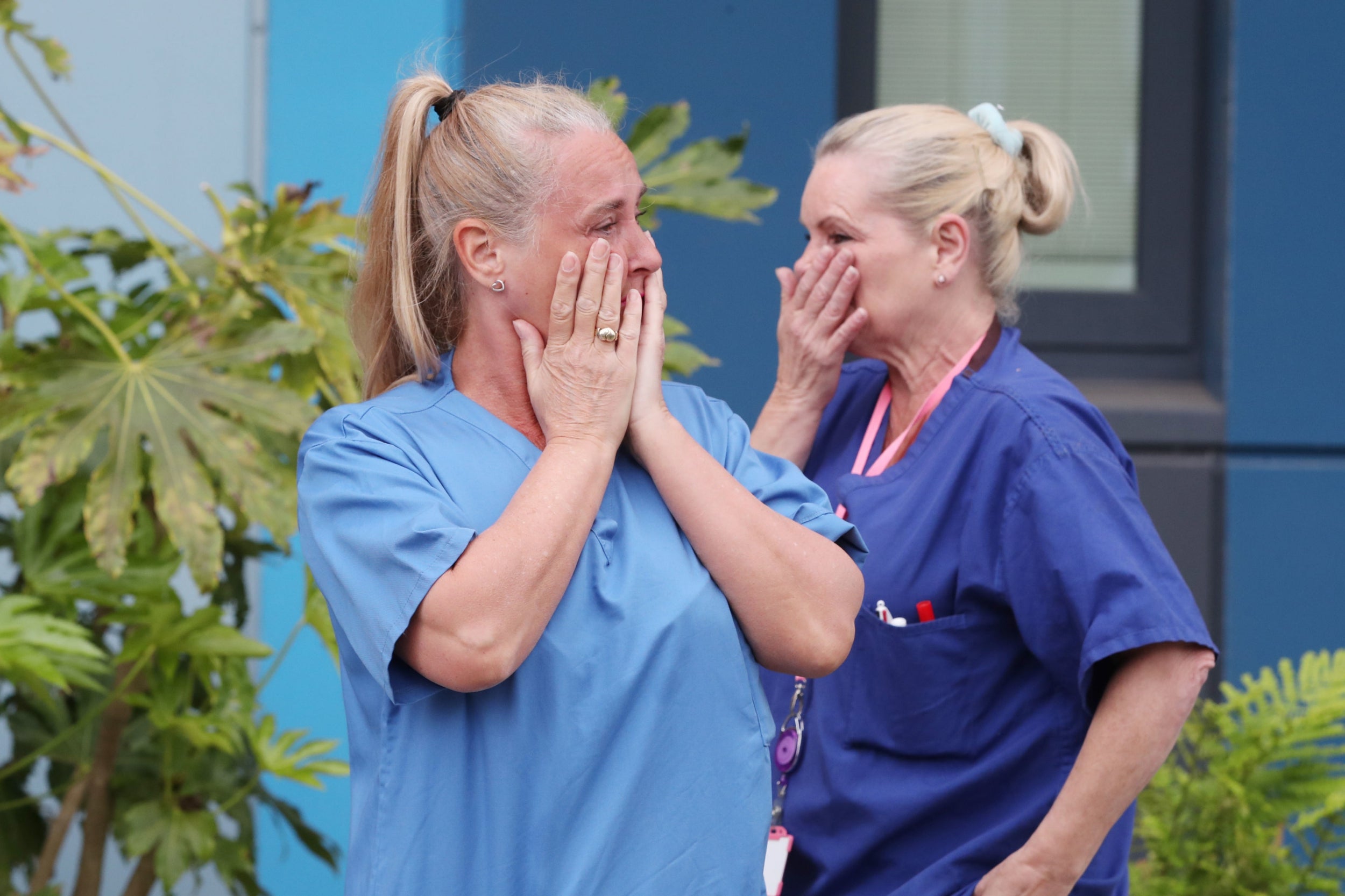
1/30
Staff react outside Salford Royal Hospital in Manchester during a minute’s silence to pay tribute to the NHS staff and key workers who have died during the coronavirus outbreak
PA
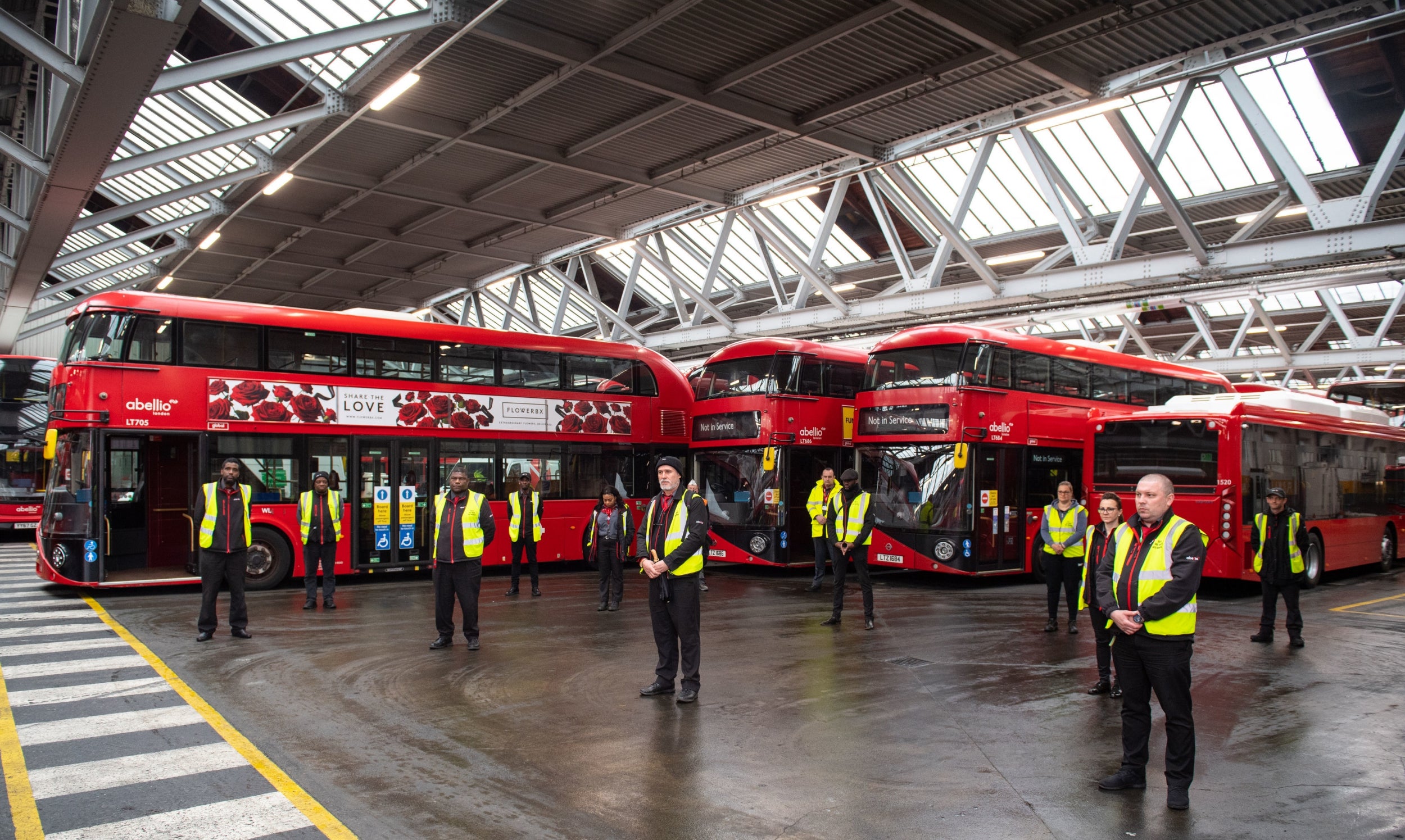
2/30
Staff inside Camberwell bus depot in London, during a minute’s silence
PA
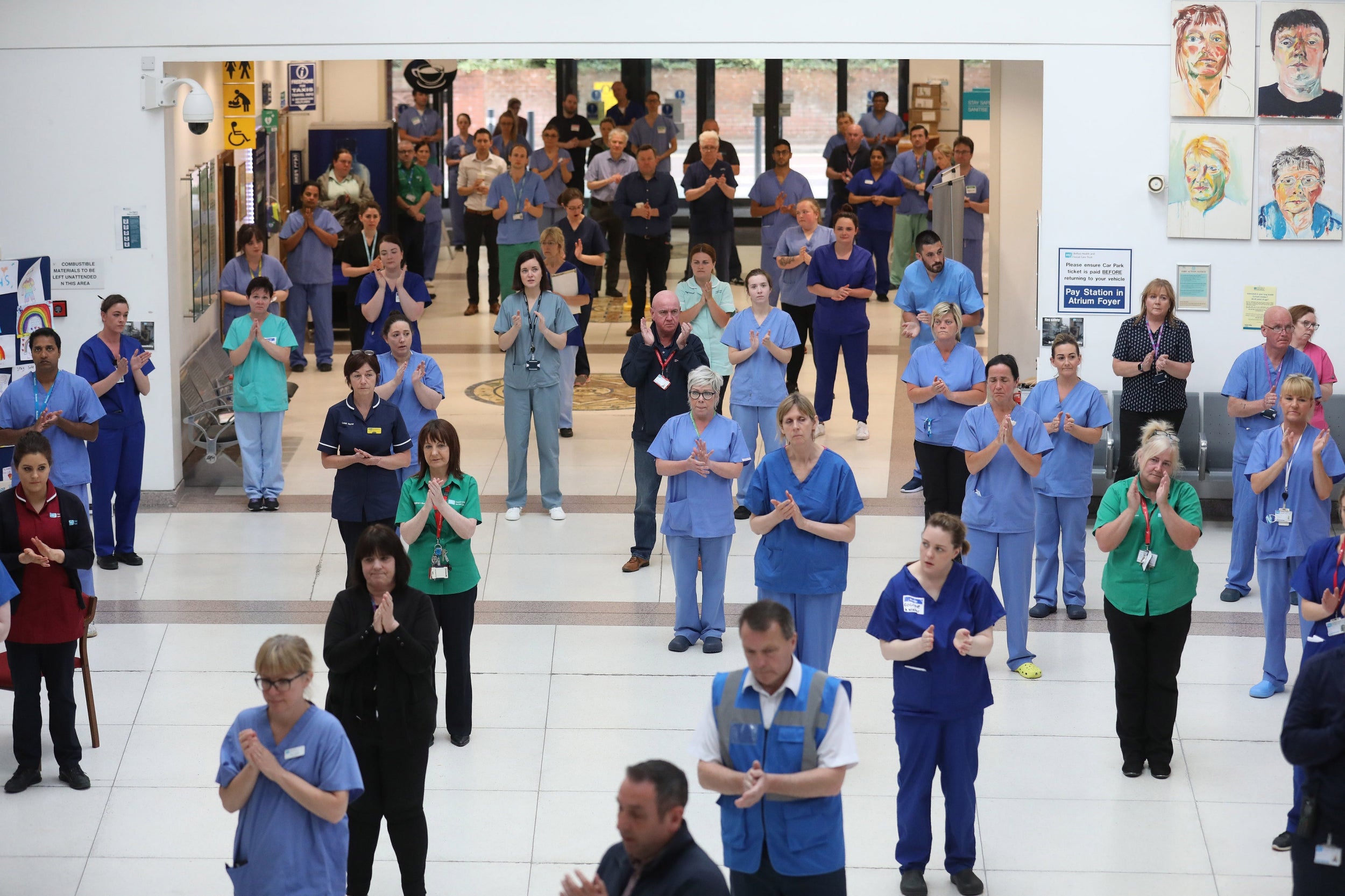
3/30
NHS staff at the Mater hospital in Belfast, during a minute’s silence to pay tribute to the NHS staff and key workers who have died during the coronavirus outbreak.
PA
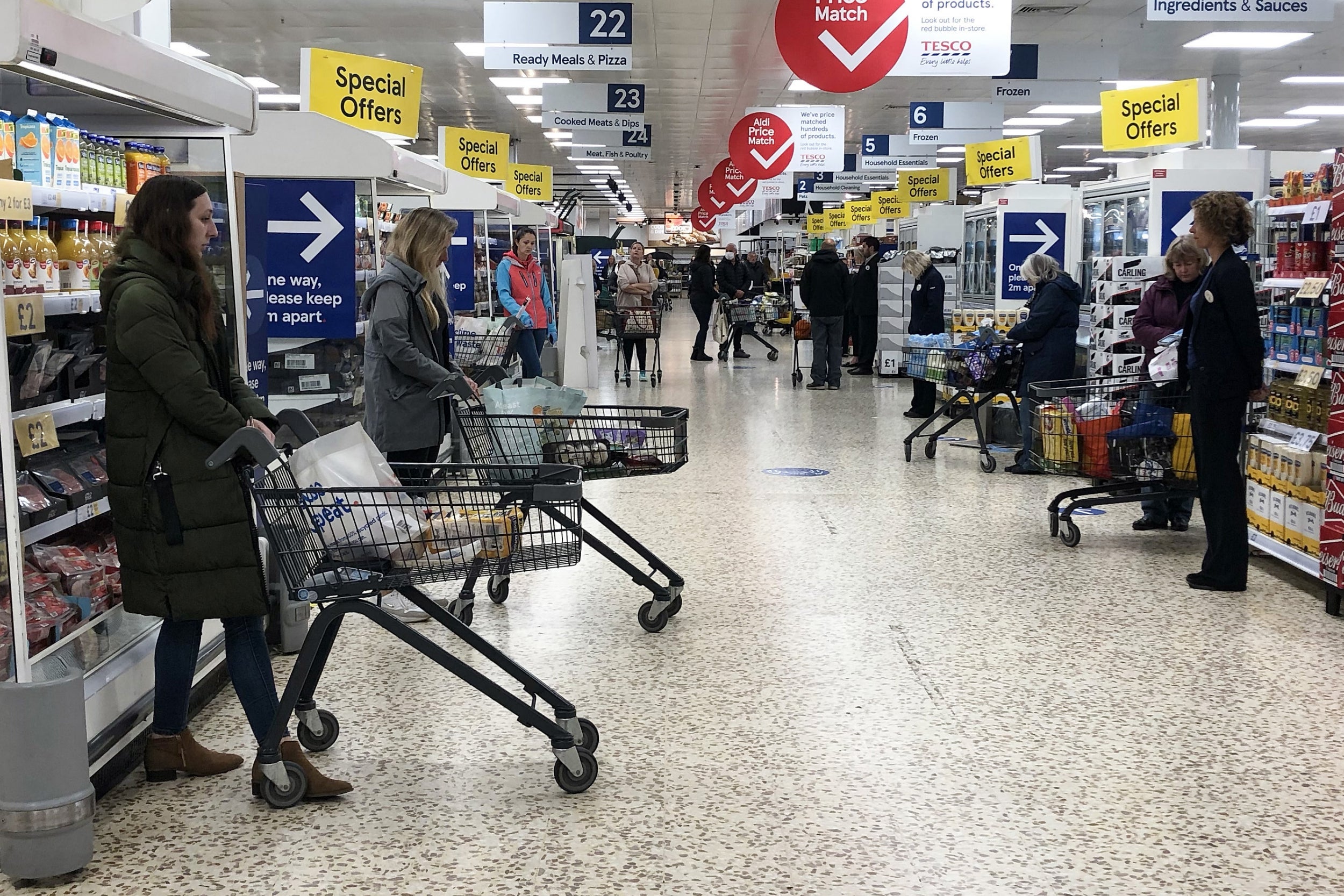
4/30
Shoppers observe a minute’s silence in Tescos in Shoreham
Getty
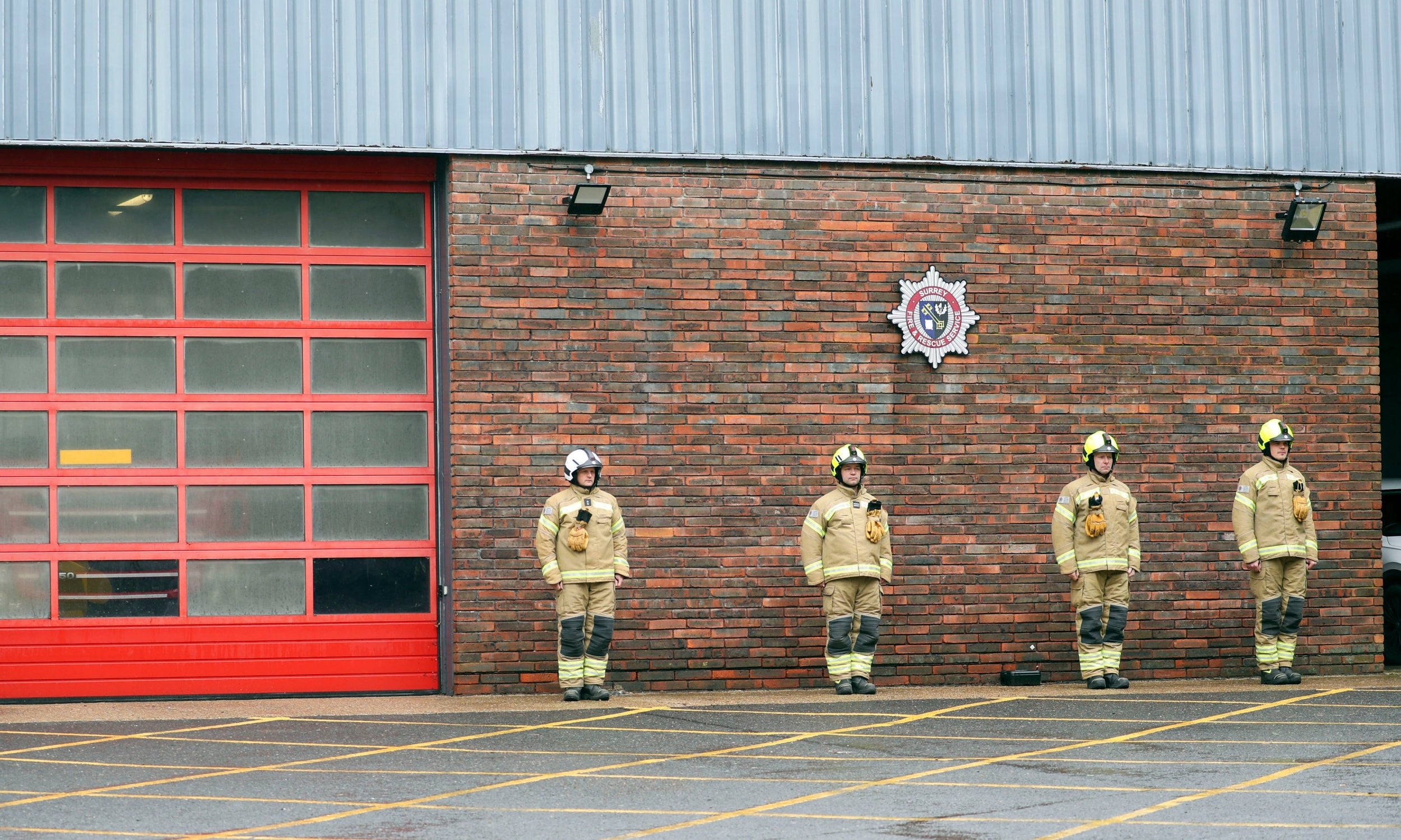
5/30
Firefighters outside Godstone fire station
PA
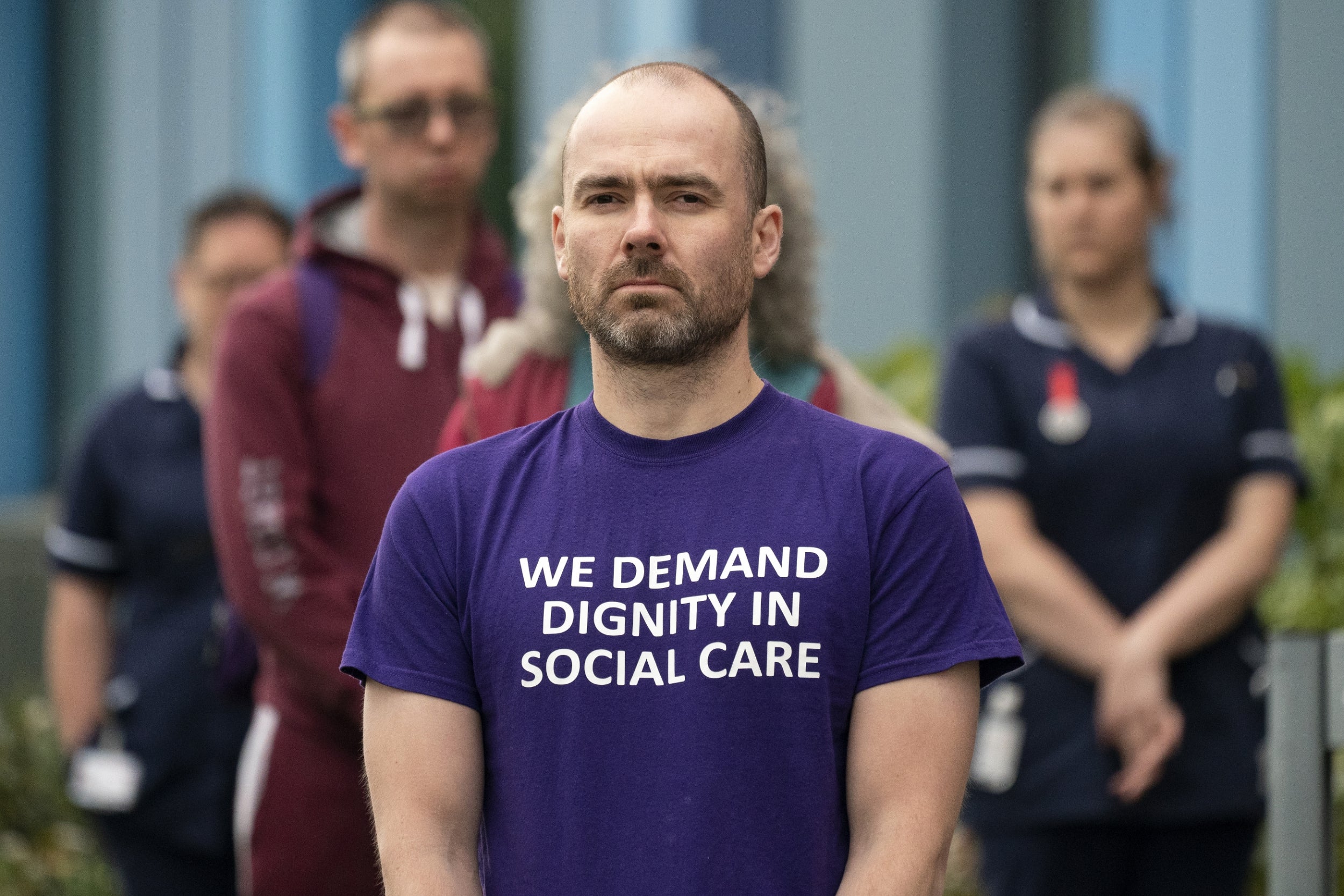
6/30 Salford Royal Hospital
Getty
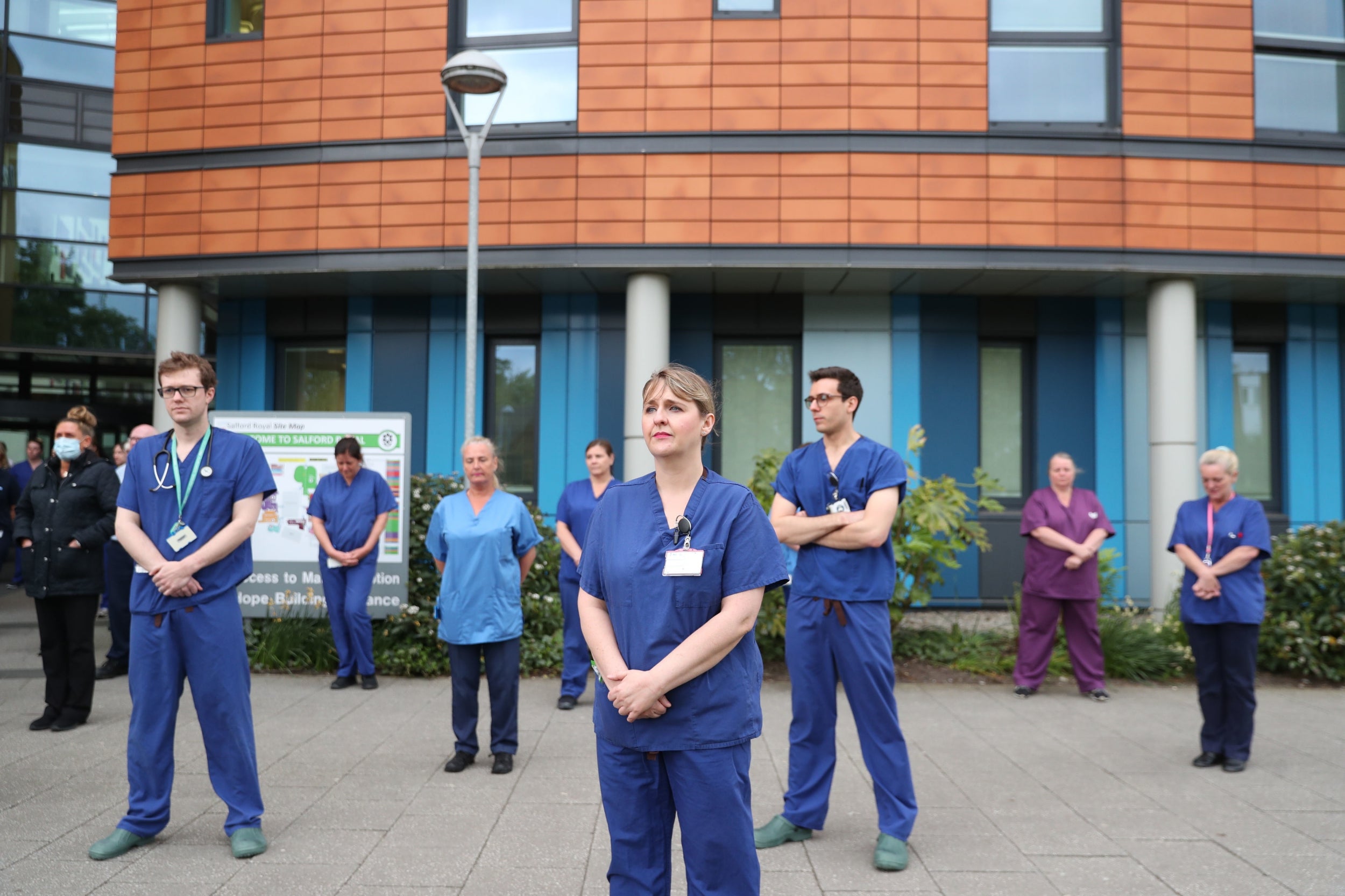
7/30 Salford Royal Hospital
PA
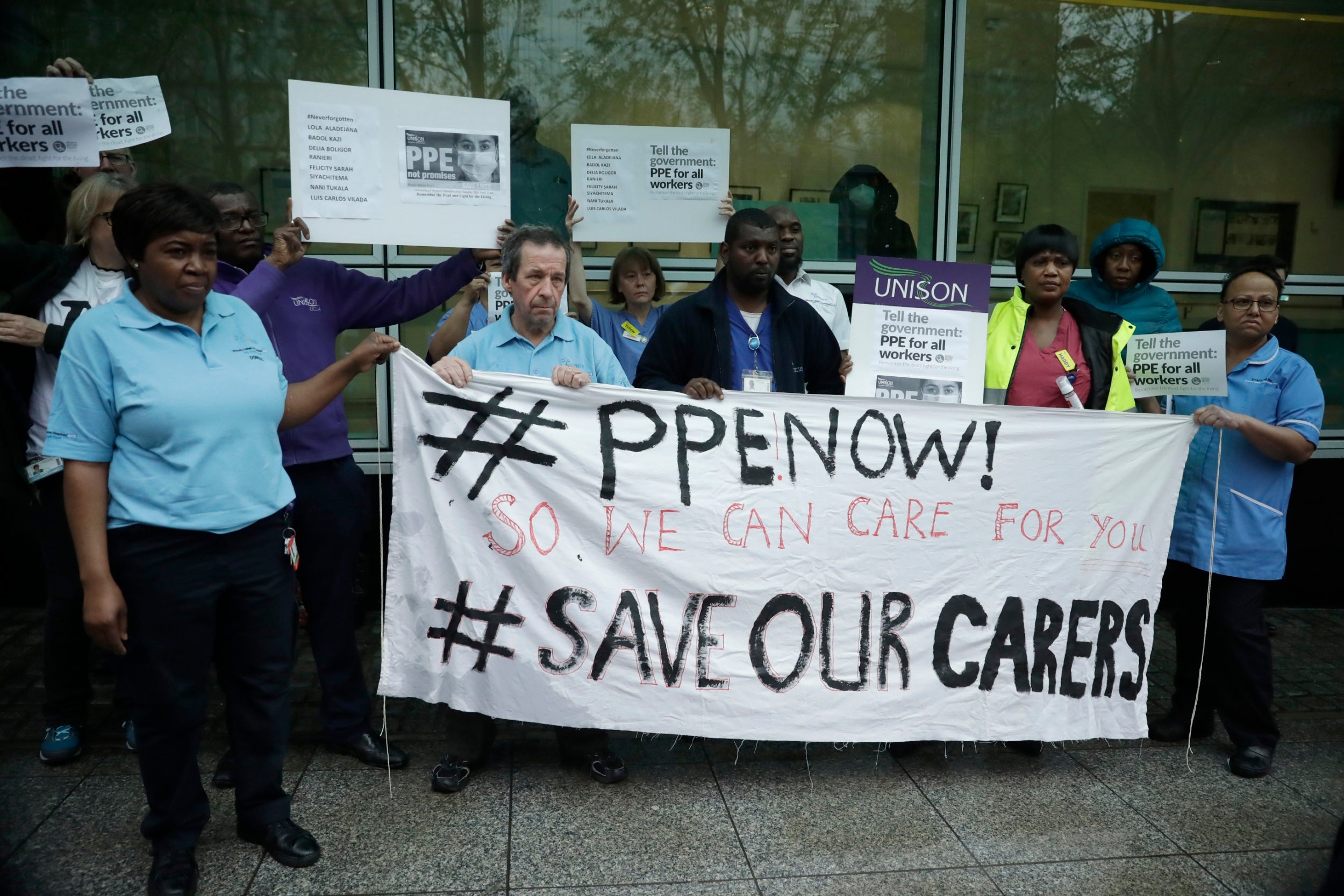
8/30
Hospital workers take part in a protest calling on the British government to provide PPE across Britain for all workers in care, the NHS and other vital public services after a nationwide minute’s silence at University College Hospital in London
AP
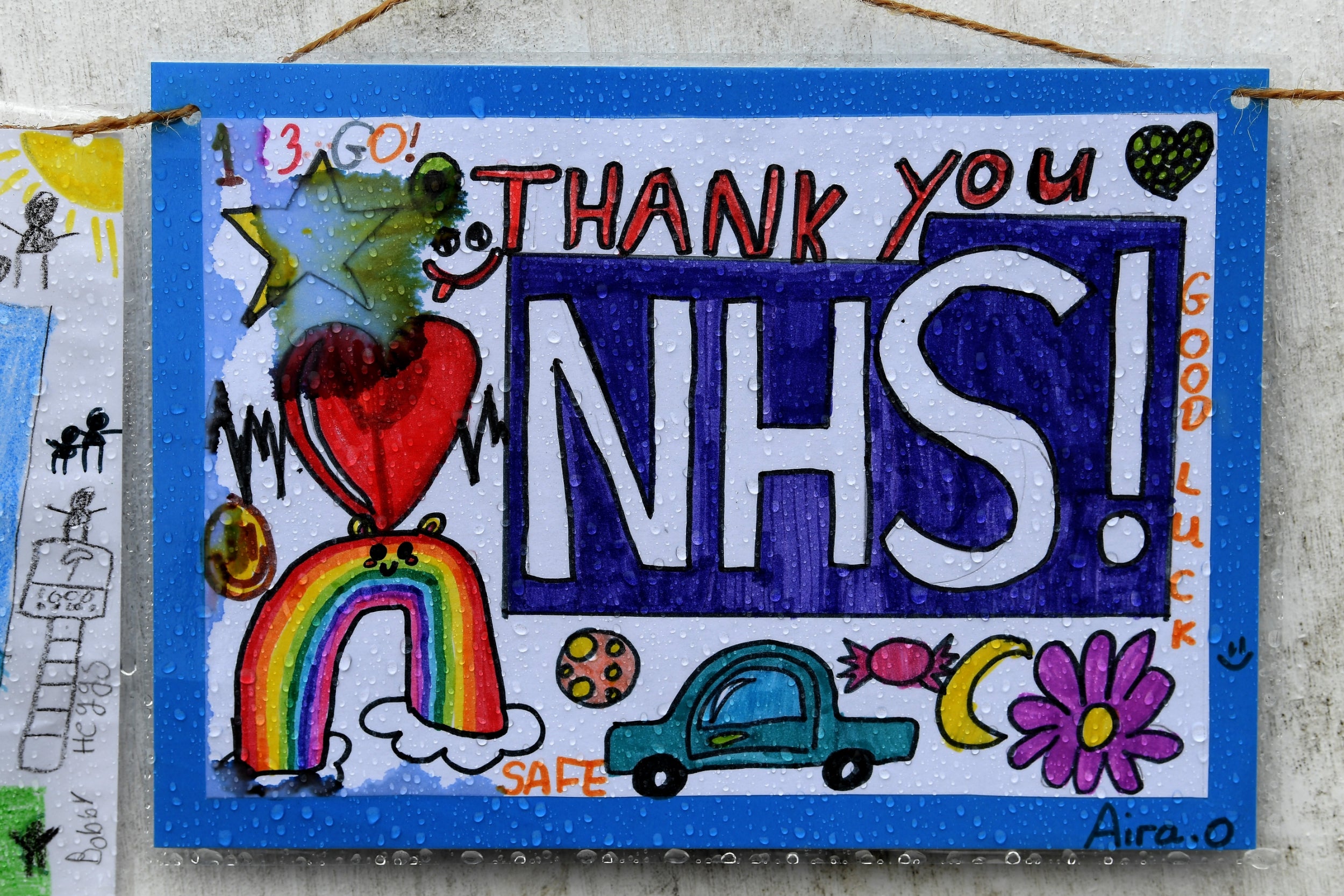
9/30
A school children’s poster hanging outside Glenfield Hospital during a minute’s silence
Getty
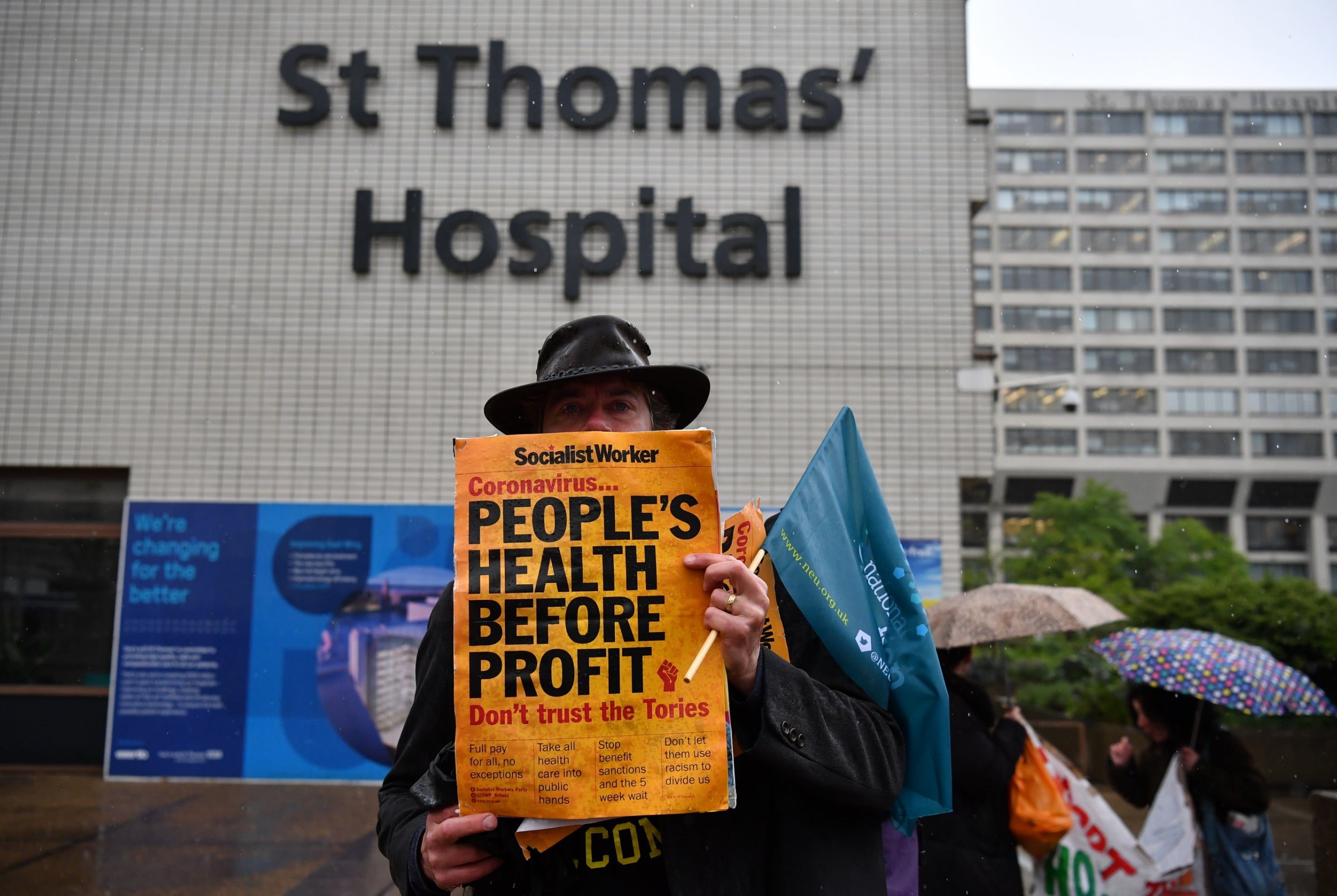
10/30
A man holds a placard that reads “People’s health before profit” outside St Thomas hospital
Getty
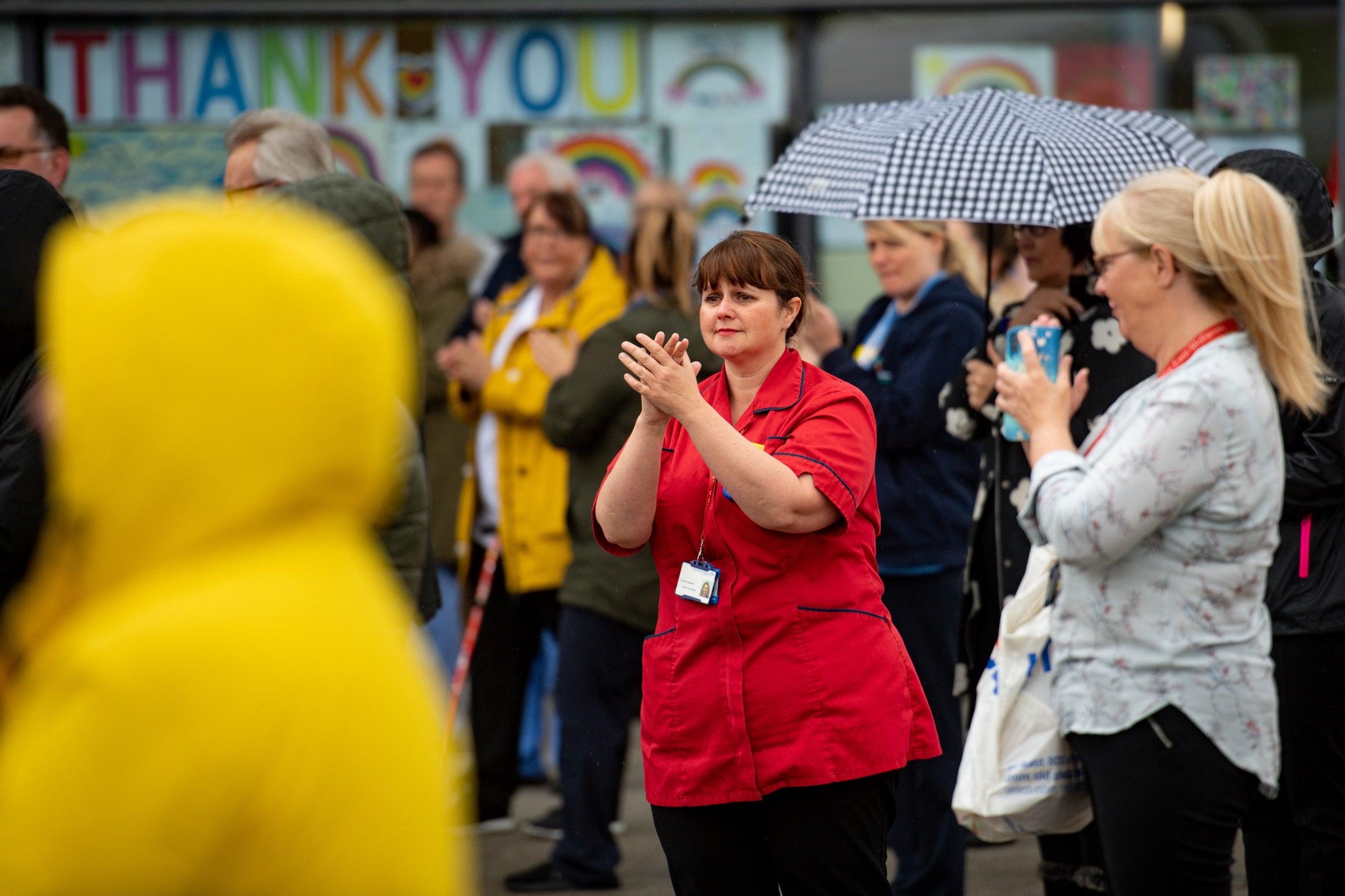
11/30
Staff members applaud outside the Royal Derby Hospital, following a minute’s silence
PA
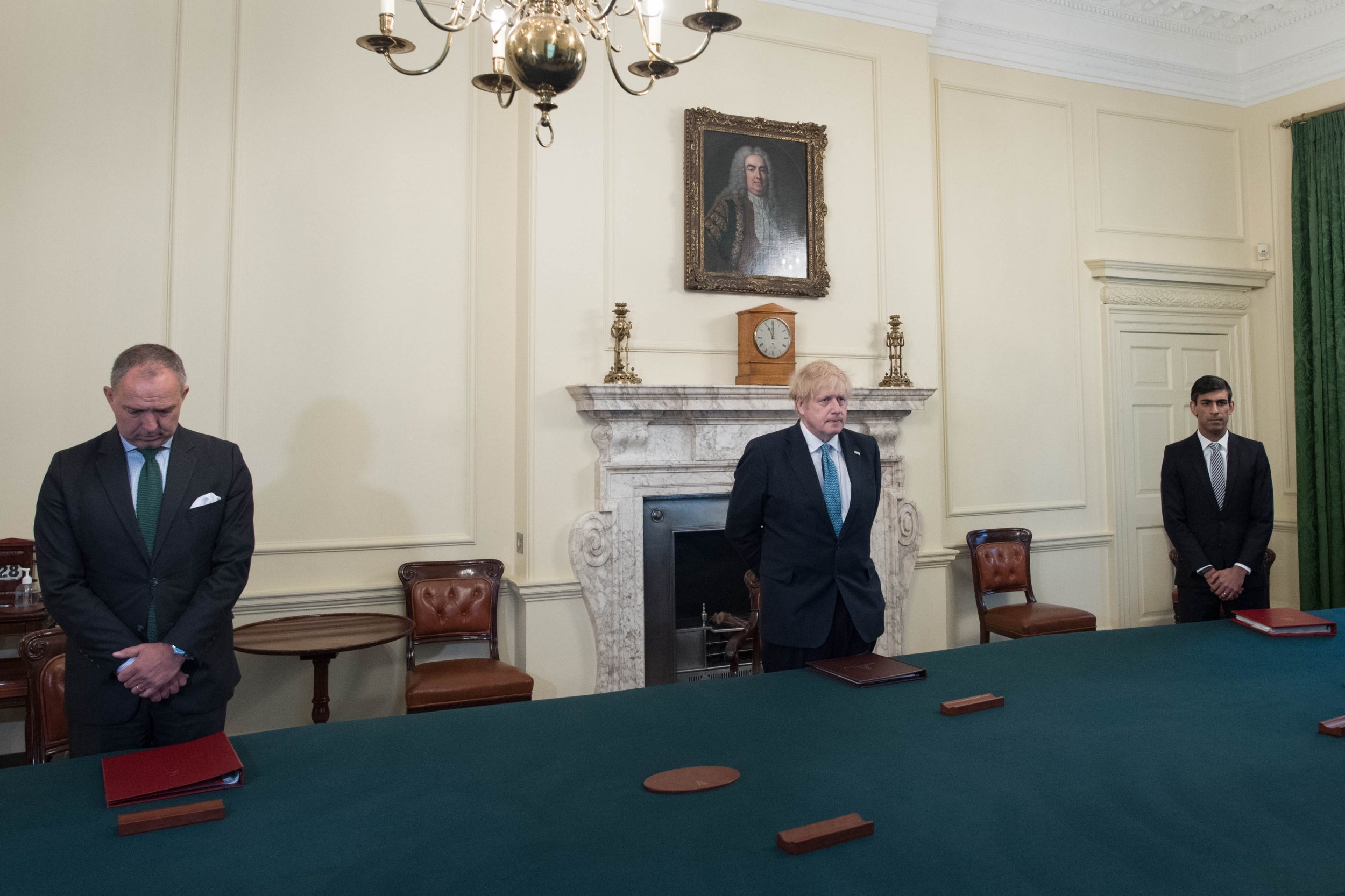
12/30
Cabinet Secretary Mark Sedwill, Prime minister Boris Johnson and Chancellor of the Exchequer Rishi Sunak, stand inside 10 Downing Street, London, to observe a minutes silence in tribute to the NHS staff and key workers who have died during the coronavirus outbreak
PA
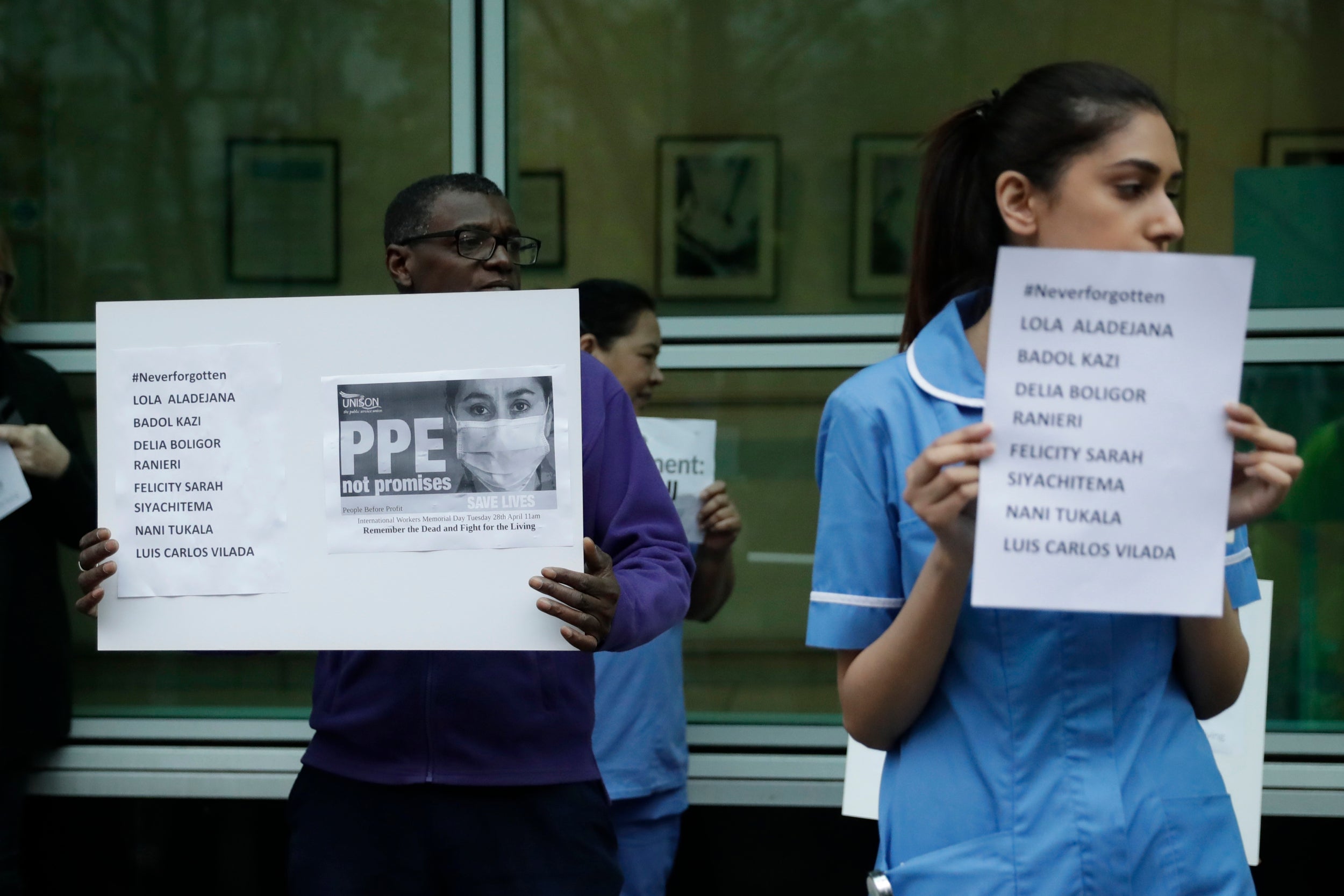
13/30 University College Hospital, London
Hospital workers hold placards with the names of their colleagues who have died from coronavirus as they take part in a protest calling on the British government to provide PPE
AP
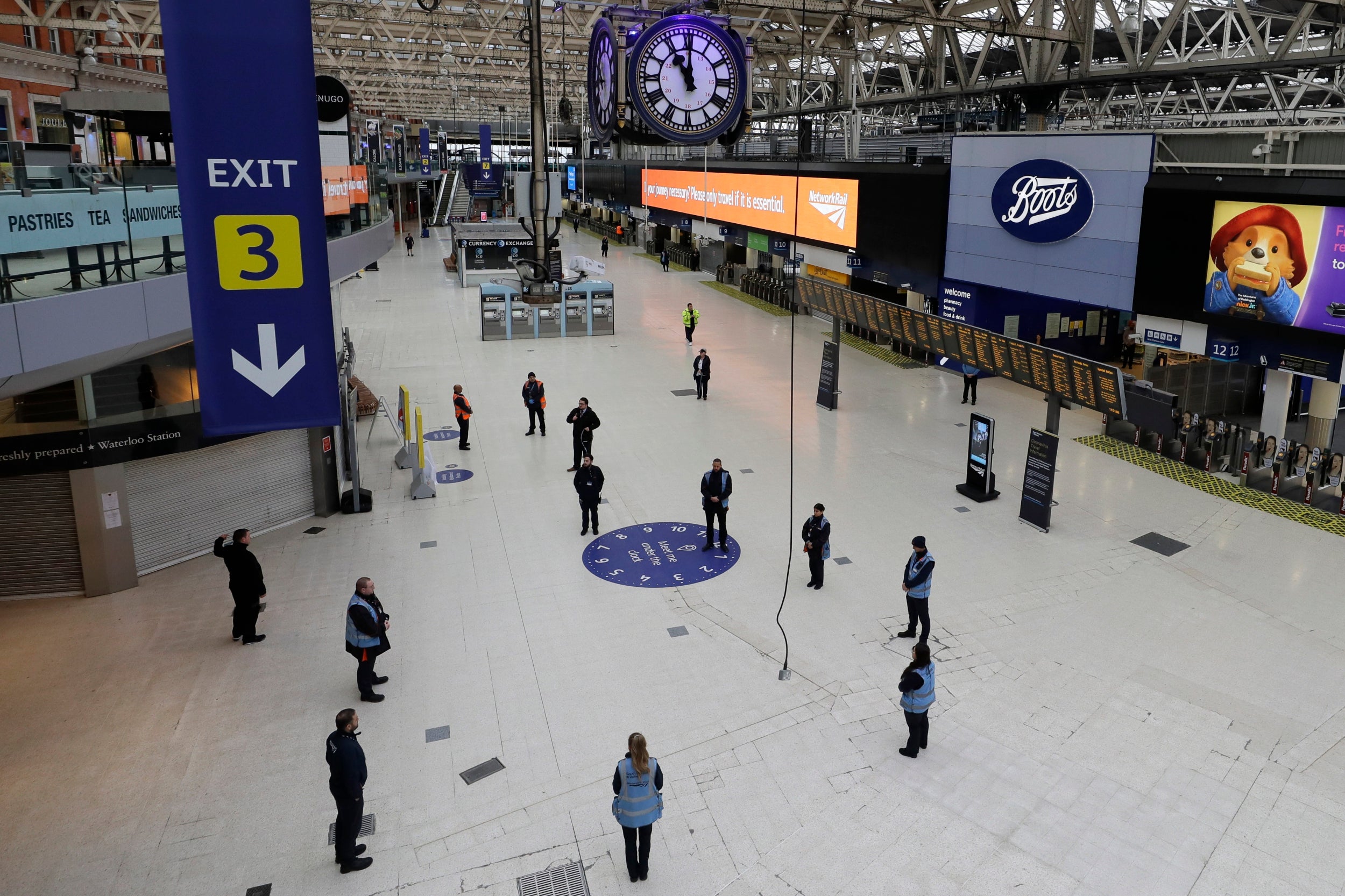
14/30
Staff at Waterloo Station in London, stand to observe a minute’s silence, to pay tribute to NHS and key workers who have died with coronavirus
AP
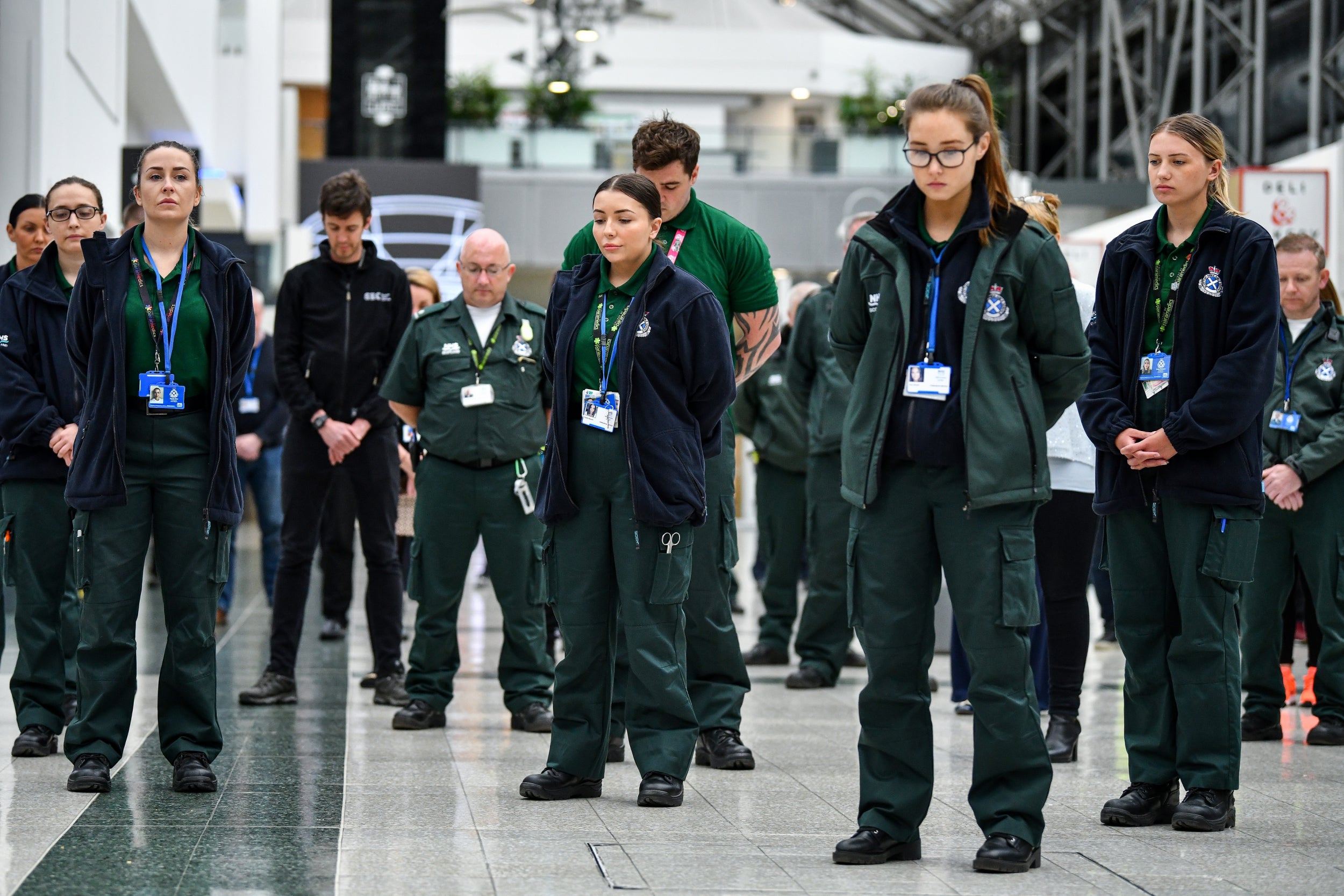
15/30
Medical staff at the Louisa Jordan hospital stand during a UK wide minutes silence to commemorate the key workers who have died with coronavirus in Glasgow
Getty
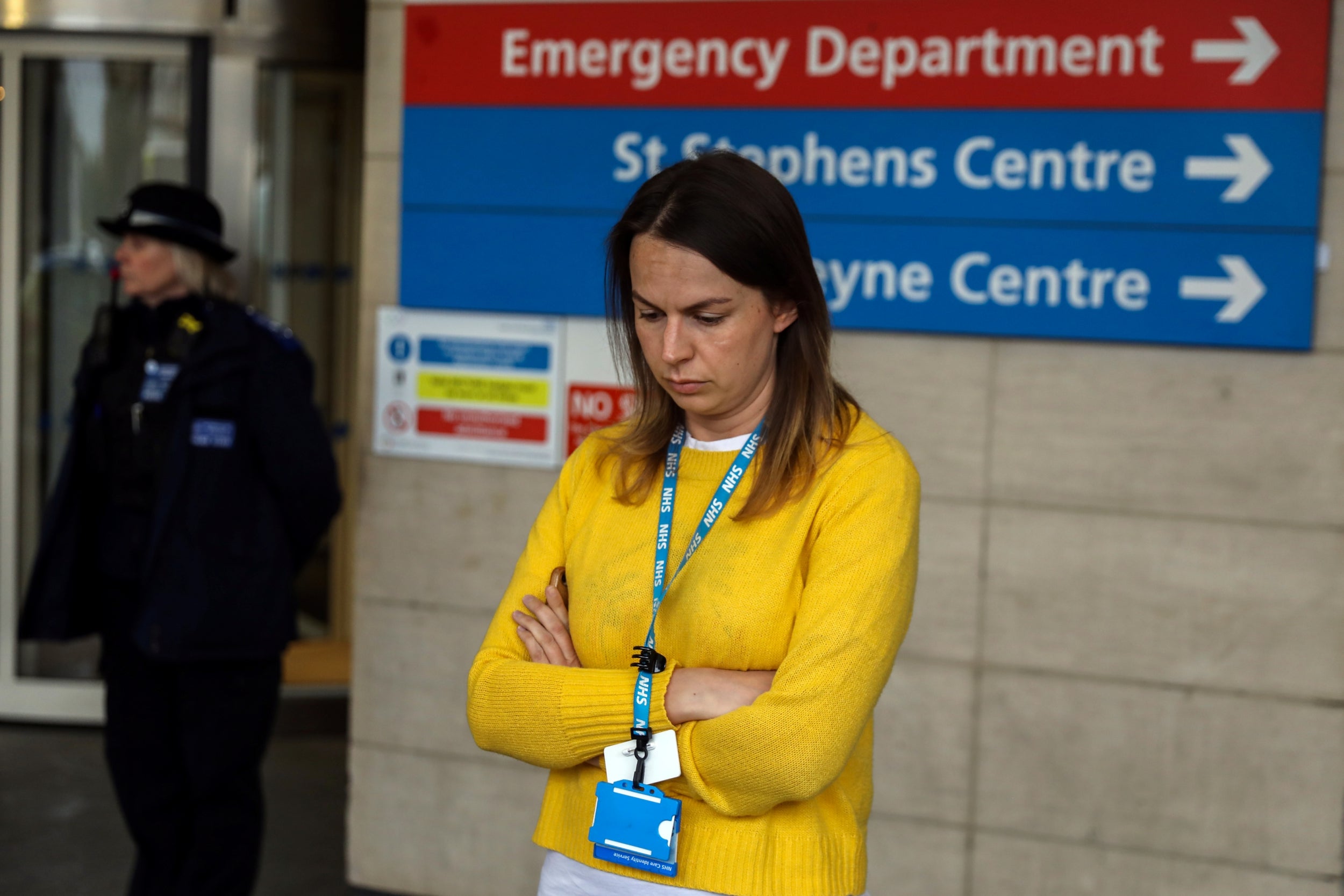
16/30 London
An NHS worker observes a minute’s silence at Chelsea and Westminster Hospital
Reuters
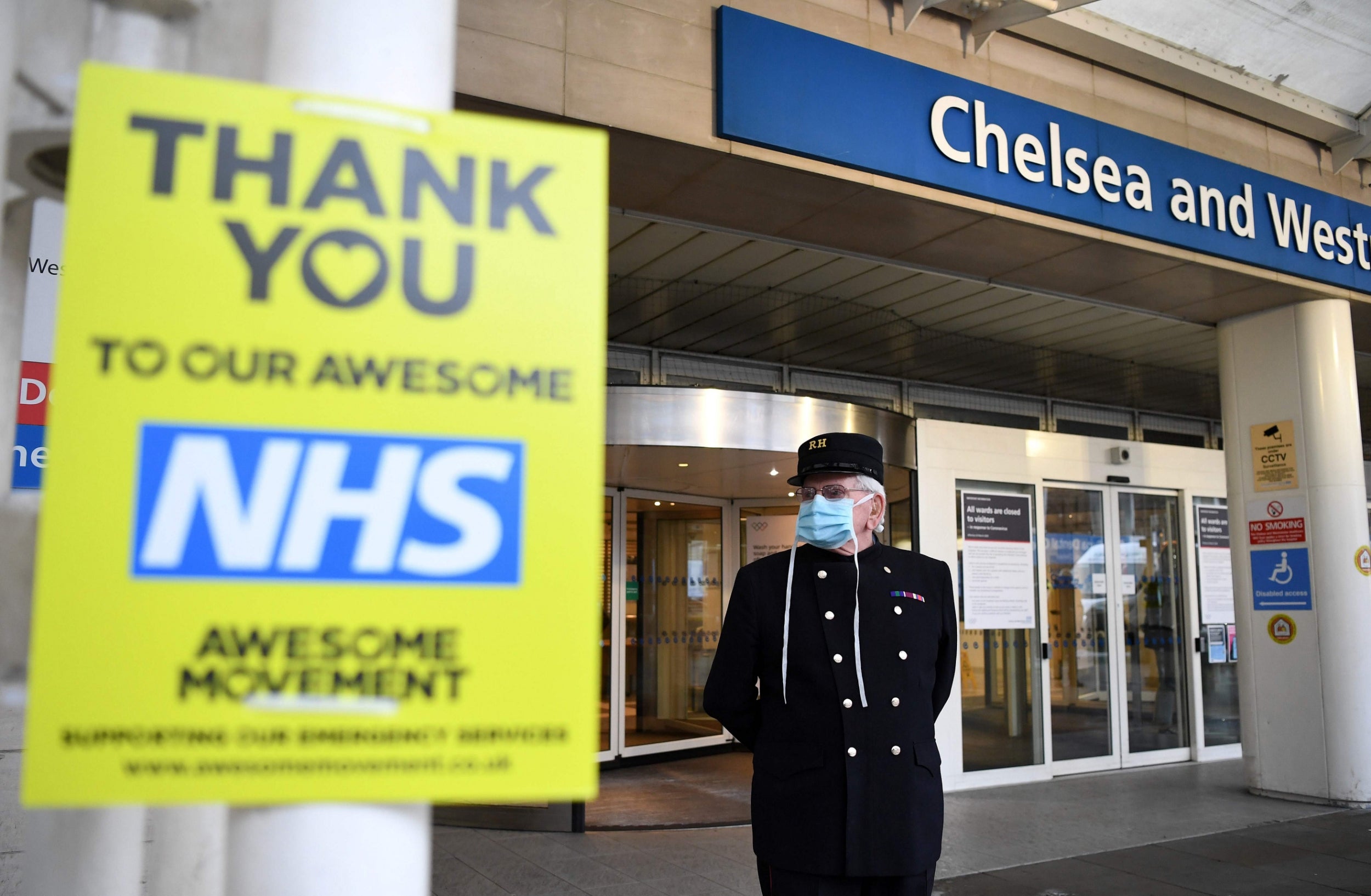
17/30 Chelsea and Westminster Hospital in London
AFP via Getty
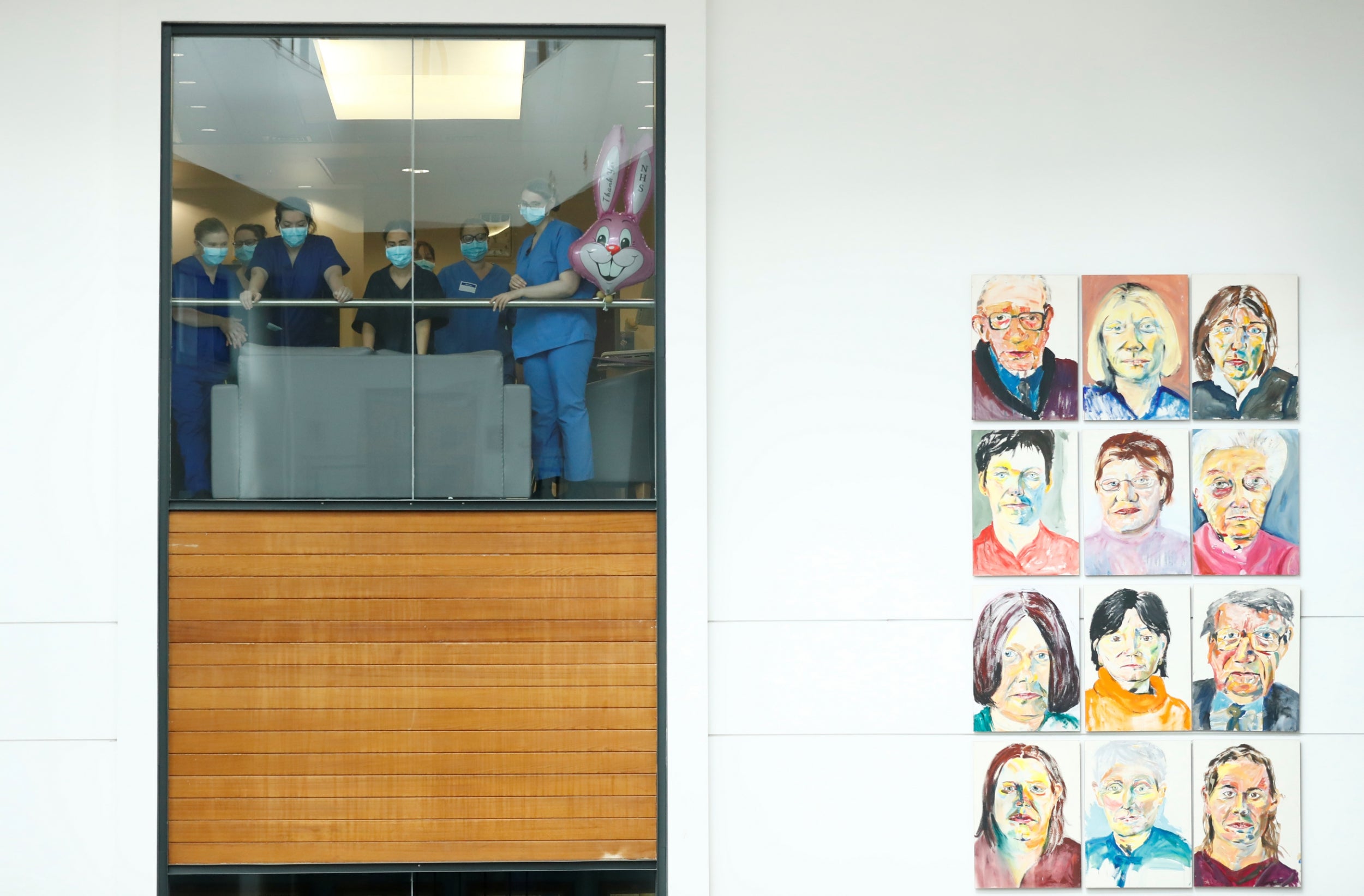
18/30 Belfast, Northern Ireland
NHS staff observe a minutes silence at Mater Infirmorum Hospital
Reuters
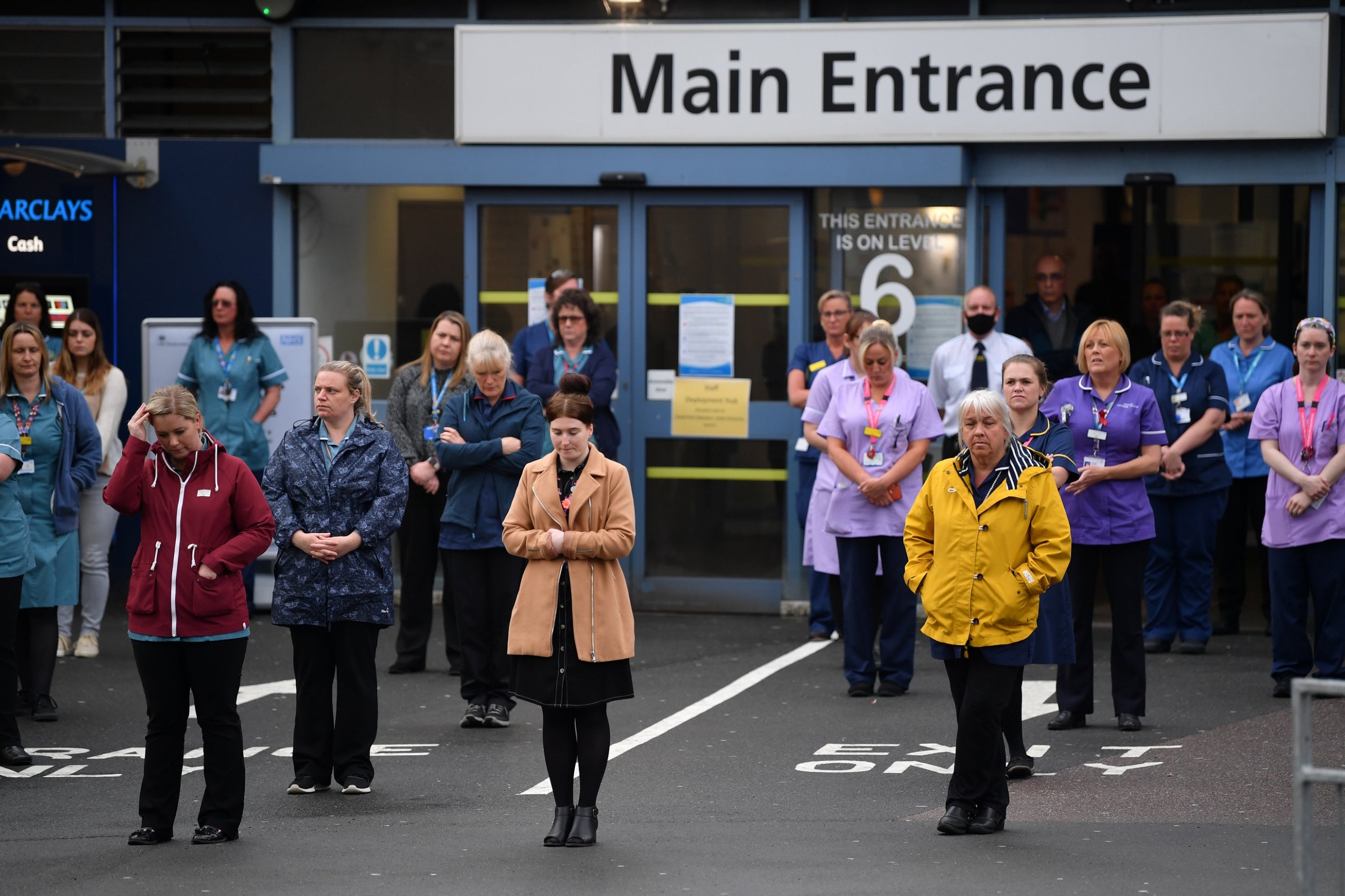
19/30 Plymouth
NHS workers hold a minute’s silence outside the main entrance of Derriford Hospital
Getty
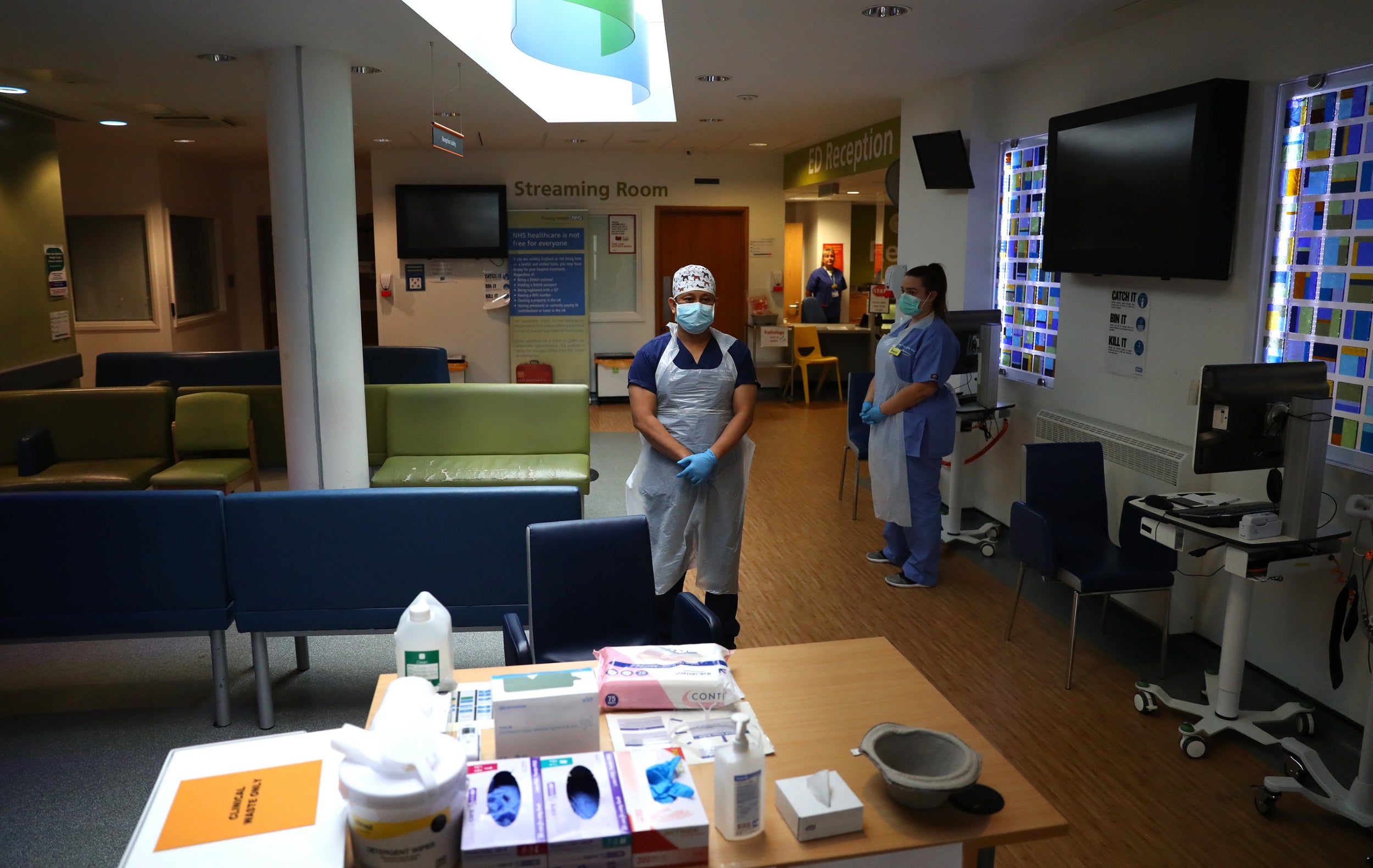
20/30
NHS Frimley Park Hospital staff at the A&E department observe a minute’s silence
Getty
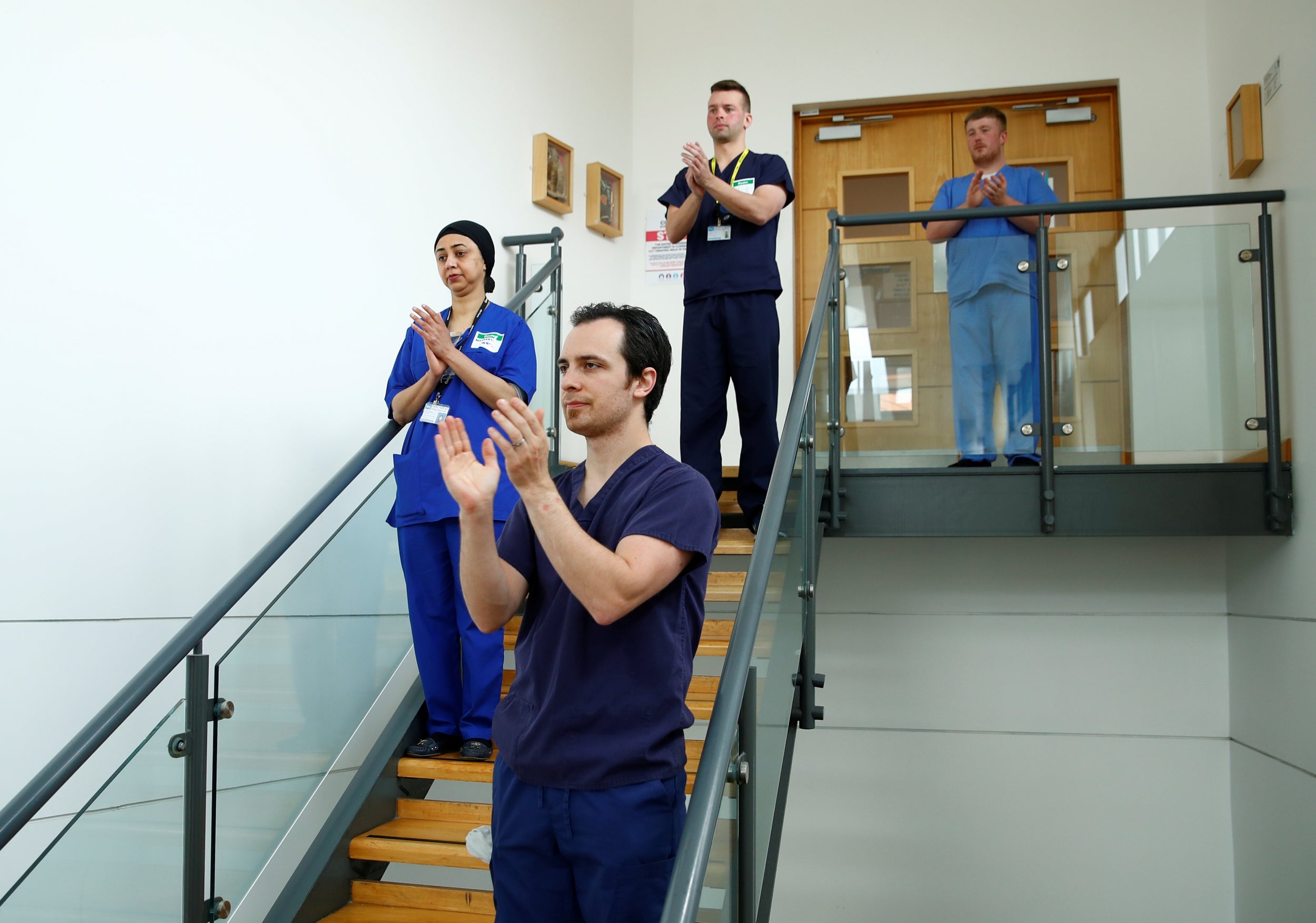
21/30 Mater Infirmorum Hospital
People applaud after a minutes silence in honour of key workers
Reuters
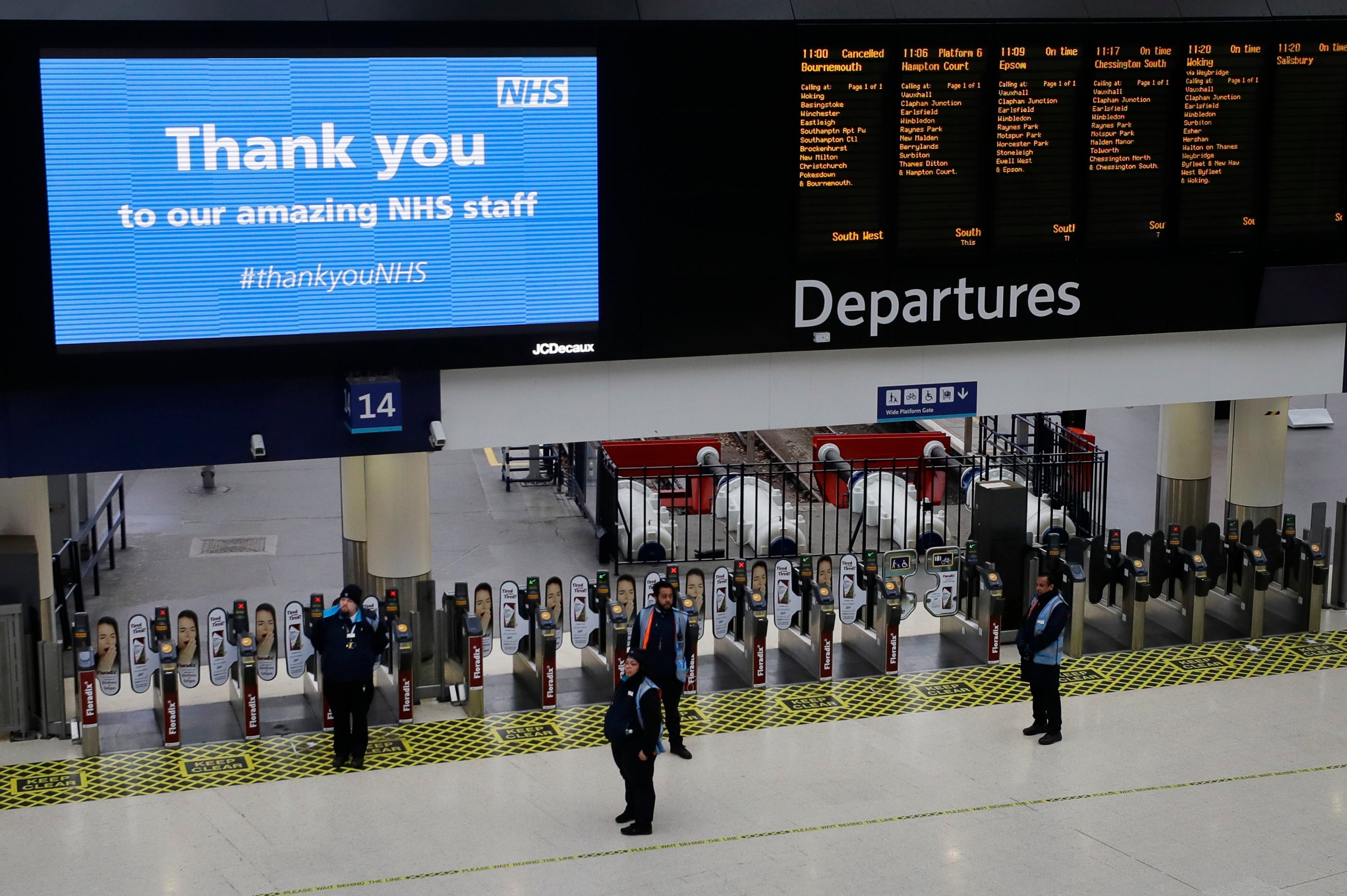
22/30 Waterloo Station, London
AP

23/30
Wreaths laid outside Sheffield town hall
PA
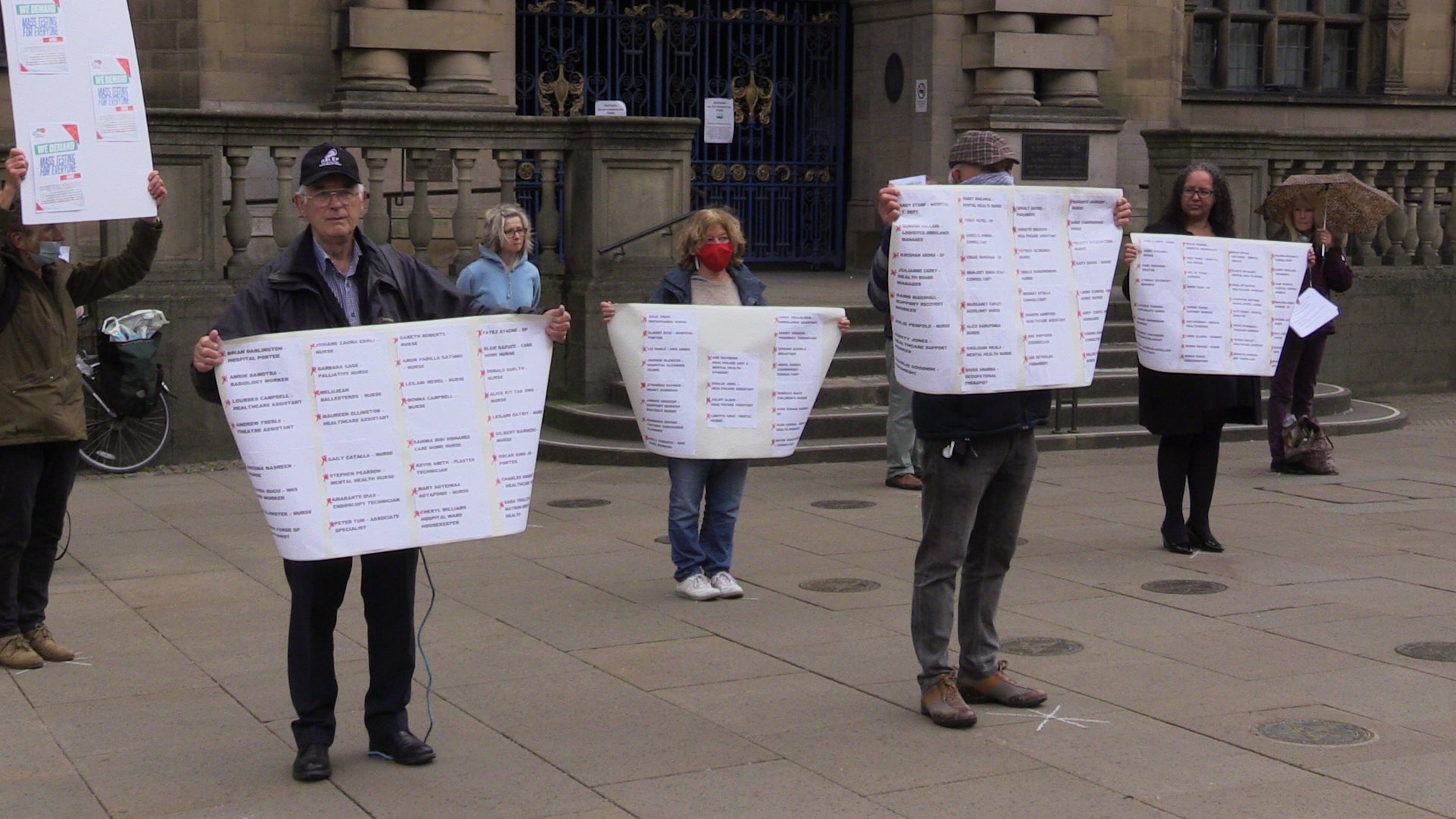
24/30
A group of trade unionists and supporters standing outside Sheffield town hall
PA
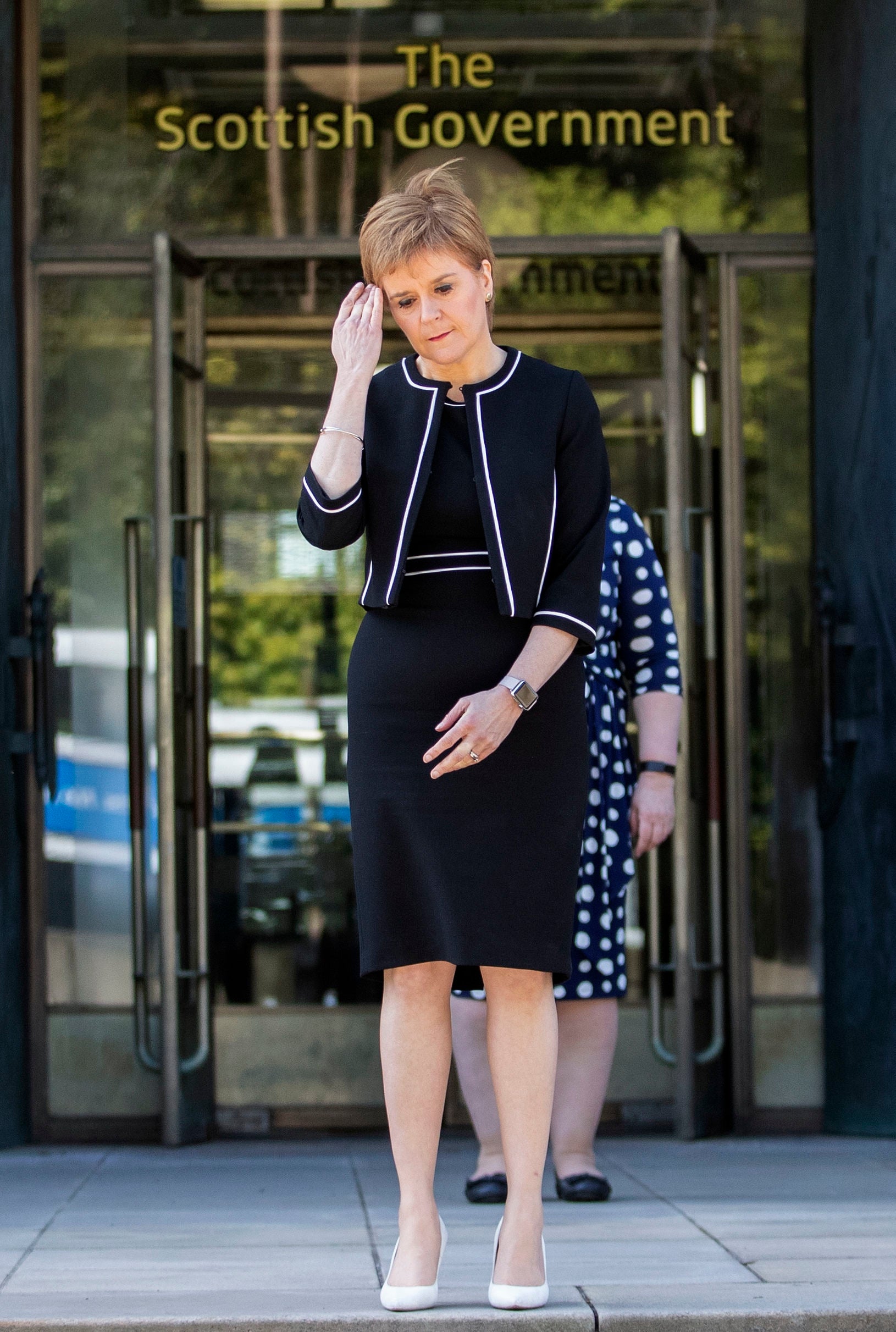
25/30
First Minister Nicola Sturgeon stands outside St Andrew’s House in Edinburgh to observe a minute’s silence in tribute to the NHS staff and key workers who have died during the coronavirus outbreak
PA
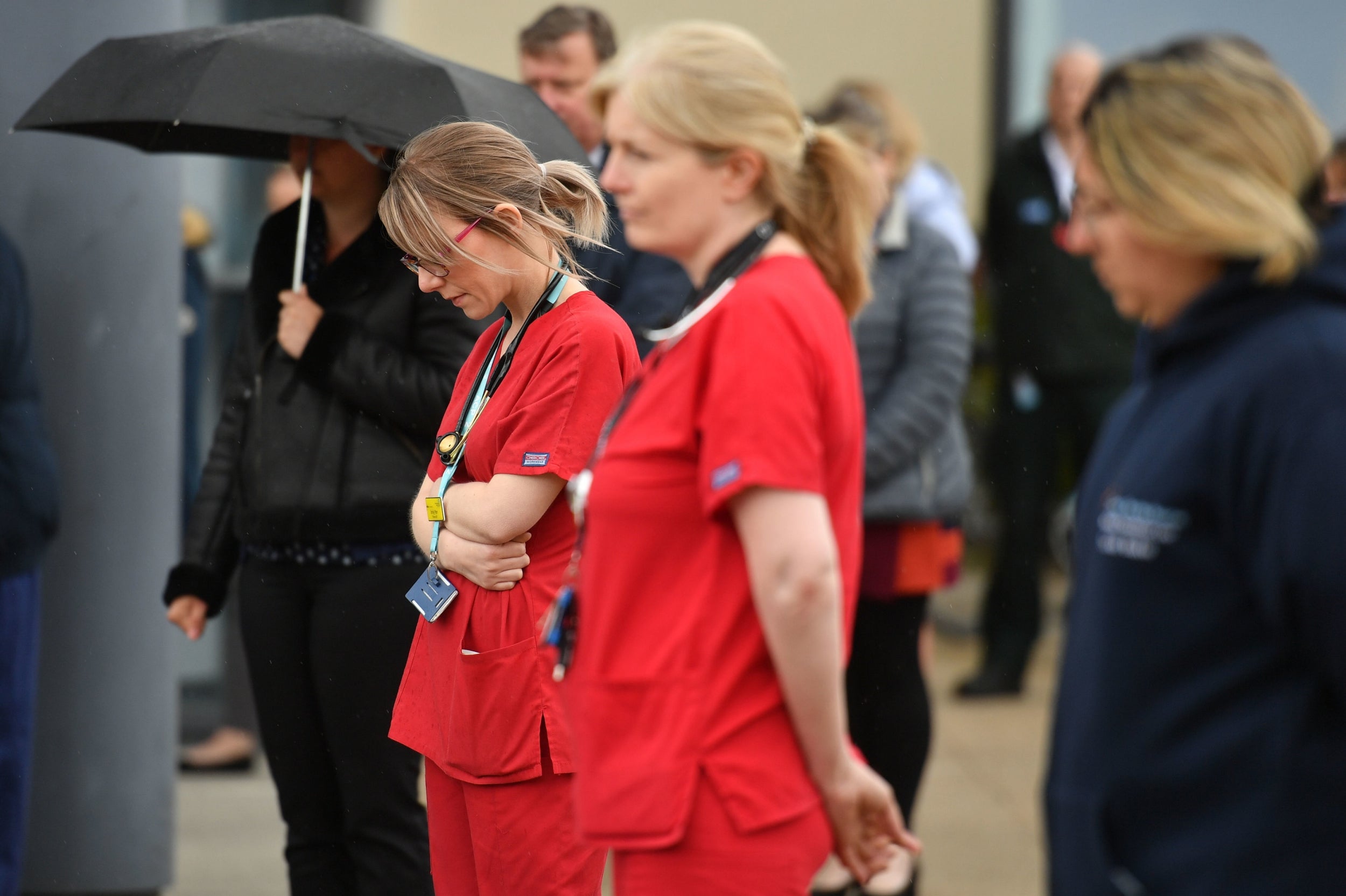
26/30
Staff stand outside the Royal Derby Hospital, during a minutes silence
PA
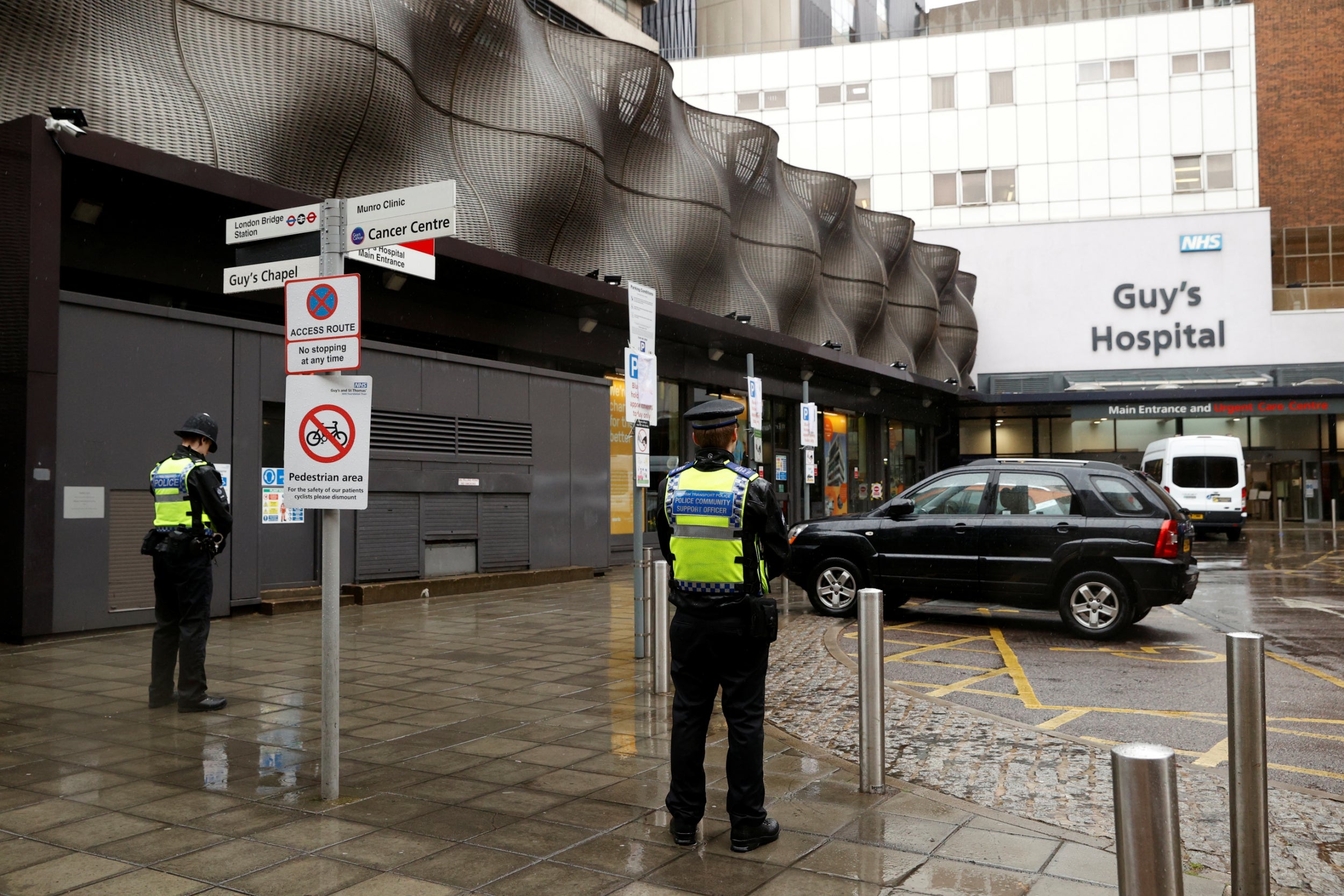
27/30 London
Police officers observe a minutes silence at Guy’s Hospital
Reuters
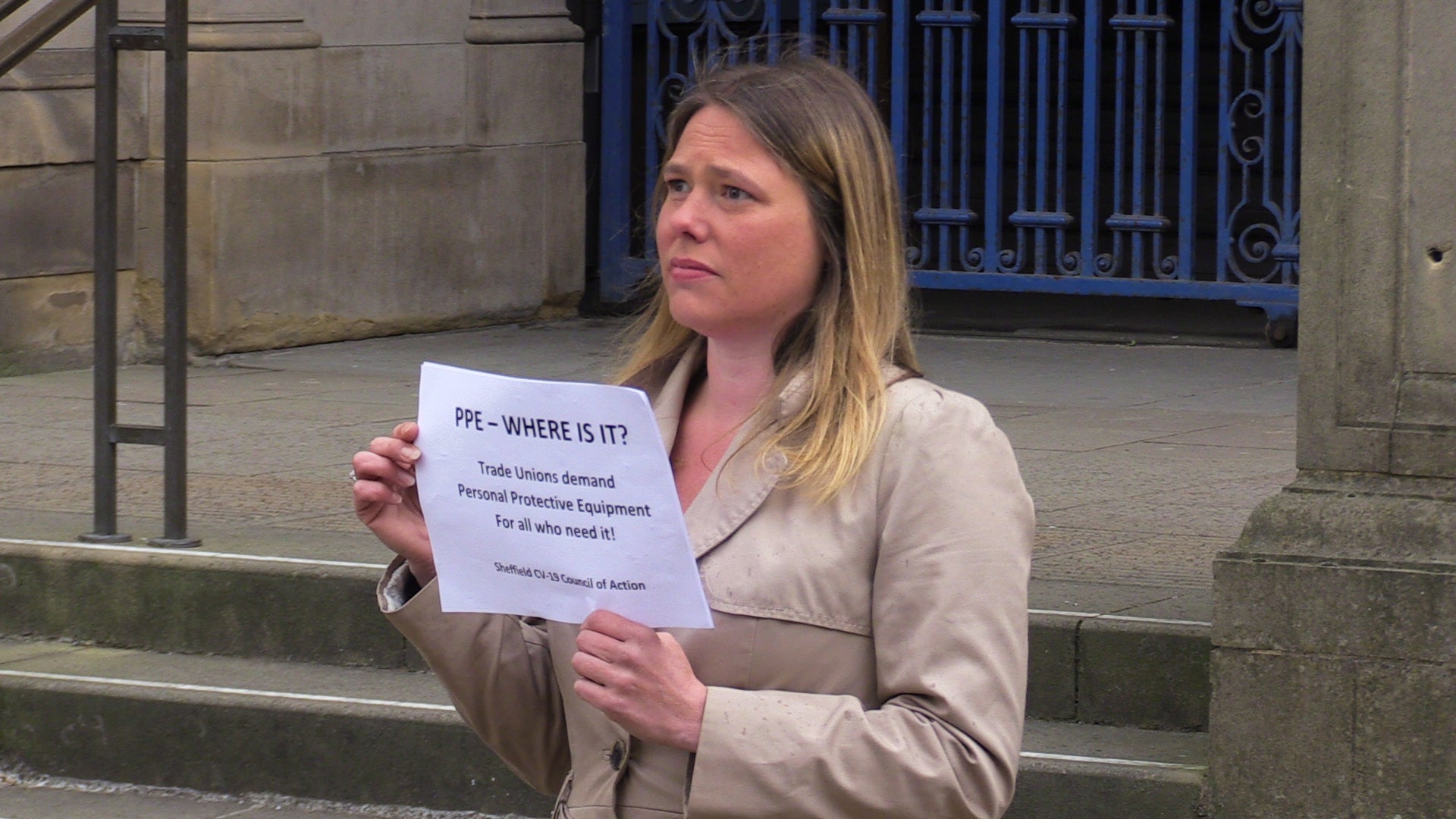
28/30
A woman standing outside Sheffield town hall
PA
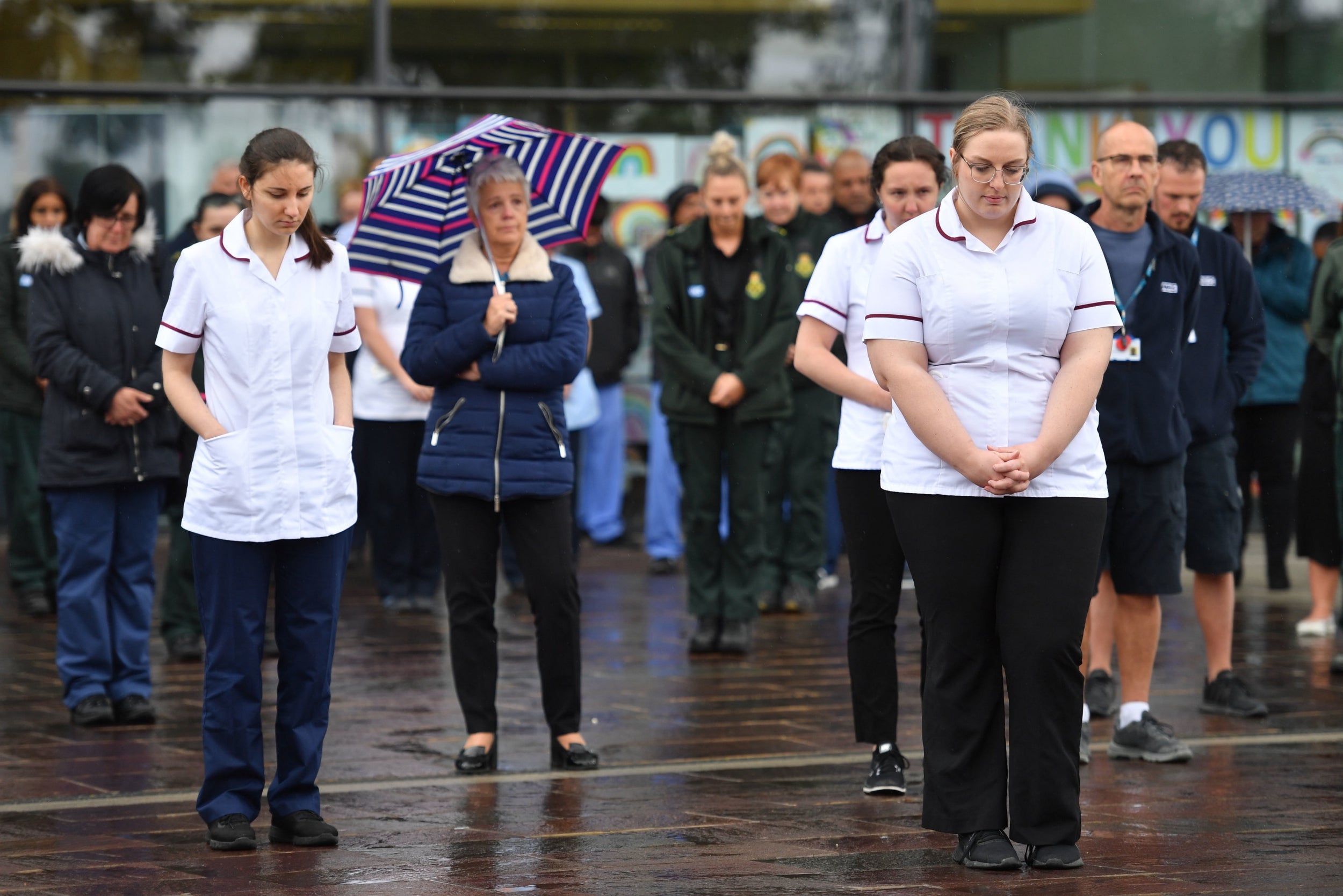
29/30 Royal Derby Hospital
PA
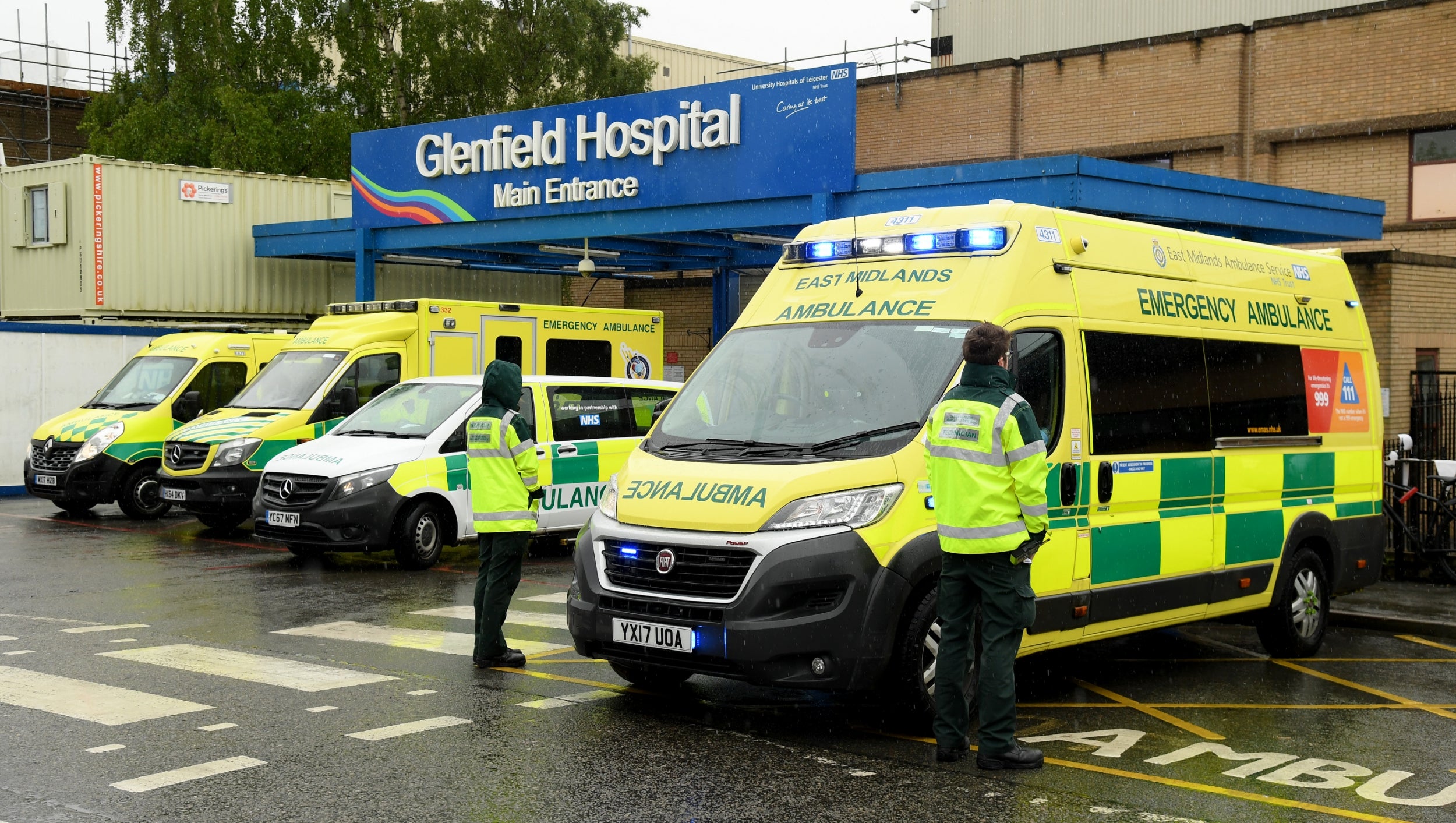
30/30 Leicester,
NHS workers during a minute’s silence outside Glenfield Hospital
Getty

1/30
Staff react outside Salford Royal Hospital in Manchester during a minute’s silence to pay tribute to the NHS staff and key workers who have died during the coronavirus outbreak
PA

2/30
Staff inside Camberwell bus depot in London, during a minute’s silence
PA

3/30
NHS staff at the Mater hospital in Belfast, during a minute’s silence to pay tribute to the NHS staff and key workers who have died during the coronavirus outbreak.
PA

4/30
Shoppers observe a minute’s silence in Tescos in Shoreham
Getty

5/30
Firefighters outside Godstone fire station
PA

6/30 Salford Royal Hospital
Getty

7/30 Salford Royal Hospital
PA

8/30
Hospital workers take part in a protest calling on the British government to provide PPE across Britain for all workers in care, the NHS and other vital public services after a nationwide minute’s silence at University College Hospital in London
AP

9/30
A school children’s poster hanging outside Glenfield Hospital during a minute’s silence
Getty

10/30
A man holds a placard that reads “People’s health before profit” outside St Thomas hospital
Getty

11/30
Staff members applaud outside the Royal Derby Hospital, following a minute’s silence
PA

12/30
Cabinet Secretary Mark Sedwill, Prime minister Boris Johnson and Chancellor of the Exchequer Rishi Sunak, stand inside 10 Downing Street, London, to observe a minutes silence in tribute to the NHS staff and key workers who have died during the coronavirus outbreak
PA

13/30 University College Hospital, London
Hospital workers hold placards with the names of their colleagues who have died from coronavirus as they take part in a protest calling on the British government to provide PPE
AP

14/30
Staff at Waterloo Station in London, stand to observe a minute’s silence, to pay tribute to NHS and key workers who have died with coronavirus
AP

15/30
Medical staff at the Louisa Jordan hospital stand during a UK wide minutes silence to commemorate the key workers who have died with coronavirus in Glasgow
Getty

16/30 London
An NHS worker observes a minute’s silence at Chelsea and Westminster Hospital
Reuters

17/30 Chelsea and Westminster Hospital in London
AFP via Getty

18/30 Belfast, Northern Ireland
NHS staff observe a minutes silence at Mater Infirmorum Hospital
Reuters

19/30 Plymouth
NHS workers hold a minute’s silence outside the main entrance of Derriford Hospital
Getty

20/30
NHS Frimley Park Hospital staff at the A&E department observe a minute’s silence
Getty

21/30 Mater Infirmorum Hospital
People applaud after a minutes silence in honour of key workers
Reuters

22/30 Waterloo Station, London
AP

23/30
Wreaths laid outside Sheffield town hall
PA

24/30
A group of trade unionists and supporters standing outside Sheffield town hall
PA

25/30
First Minister Nicola Sturgeon stands outside St Andrew’s House in Edinburgh to observe a minute’s silence in tribute to the NHS staff and key workers who have died during the coronavirus outbreak
PA

26/30
Staff stand outside the Royal Derby Hospital, during a minutes silence
PA

27/30 London
Police officers observe a minutes silence at Guy’s Hospital
Reuters

28/30
A woman standing outside Sheffield town hall
PA

29/30 Royal Derby Hospital
PA

30/30 Leicester,
NHS workers during a minute’s silence outside Glenfield Hospital
Getty
But unions said the money amounted to just 10 per cent of the cuts absorbed by the agency over the past decade of austerity, and questioned whether enough inspectors would be available to mount the necessary safety checks.
Mr Sharma’s Business Department has released guidance, drawn up in consultation with industry and unions, on safety measures in eight workplace settings now allowed to operate, from construction sites to factories and takeaways.
Companies aiming to reopen must carry out Covid-19 risk assessments, redesign workplaces to allow two-metre distancing and introduce more frequent cleaning. They are advised to consider staggering shift times, imposing one-way routes round premises and reorganising desks and work-stations so employees face away from each other.
Speaking at the daily 10 Downing Street coronavirus briefing, Mr Sharma urged employers to follow the guidance and work with unions and staff “to keep each other safe”.
And he added: “To workers I say: we are looking out for you, we want you to feel confident that you are financially supported and returning to a safe workplace.
The latest news on Brexit, politics and beyond direct to your inbox
“Because in this time, like no other, we all need to work together safely as we rebuild our economy.”
Mr Sharma told the briefing: “Employers have a duty to keep employees safe in the workplace – that is absolutely enshrined in law.
“If somebody feels their workplace is not safe, they have to take that up with their employer.
“If they don’t feel they are getting any traction they absolutely should get in touch with the Health and Safety Executive or the local authority.”
Spelling out the HSE’s powers, Ms Albon said: “Inspectors can require businesses to do certain things – enforcement notices, requiring them to take particular kinds of action.
“In the most extreme circumstances if there is a risk of serious injury to an individual employee they can issue a notice which prohibits certain activities from taking place.
“Breach of those kind of enforcement notices is essentially a criminal offence and we can prosecute people who fail to do the right thing.”
Mr Johnson has said he does not expect a “flood” of people to return to work this week, following new guidance that encourages those who are unable to do their jobs at home to be ready to go to factories and construction sites from Wednesday.
But unions have voiced concern that staff may feel pressured to turn up, even if they are worried about the risk of infection in their workplace or while commuting by public transport.
The general secretary of the Prospect union, Mike Clancy, said that the HSE’s funding boost would not make up for 10 years of cuts which had left it with fewer than 500 main grade inspectors across the UK.
“The new money will presumably partly be used to fund new inspectors but capacity is needed as soon as possible,” said Mr Clancy.
“How are the existing inspectors expected to do the required inspections, while also training new inspectors? And will these new inspectors be permanent positions?
“All these are questions the government must answer urgently so that workers know they will be able to return to work safely and that their workplace will be adequately regulated.”
In the House of Commons, Labour’s shadow business secretary Ed Miliband challenged Mr Sharma to confirm that “workers who have a reasonable belief that they will be in danger do not have to be at work”.
Official statistics showed that construction workers are more likely to die from coronavirus than average members of the public, he said.
“It is the highest-paid workers who will generally carry on being able to work from home and lower-paid workers who are being asked to go back to work,” said Mr Miliband.
“Whatever the economic pressures, their health must be protected. They deserve to be safe and that is what the government must take every action to ensure.”



